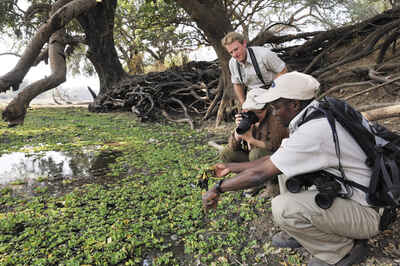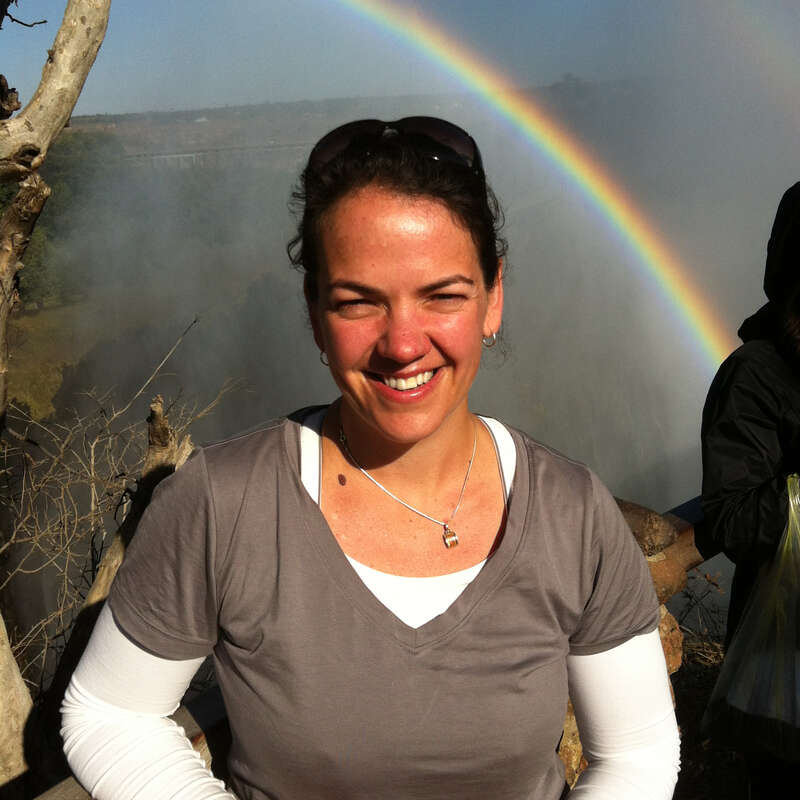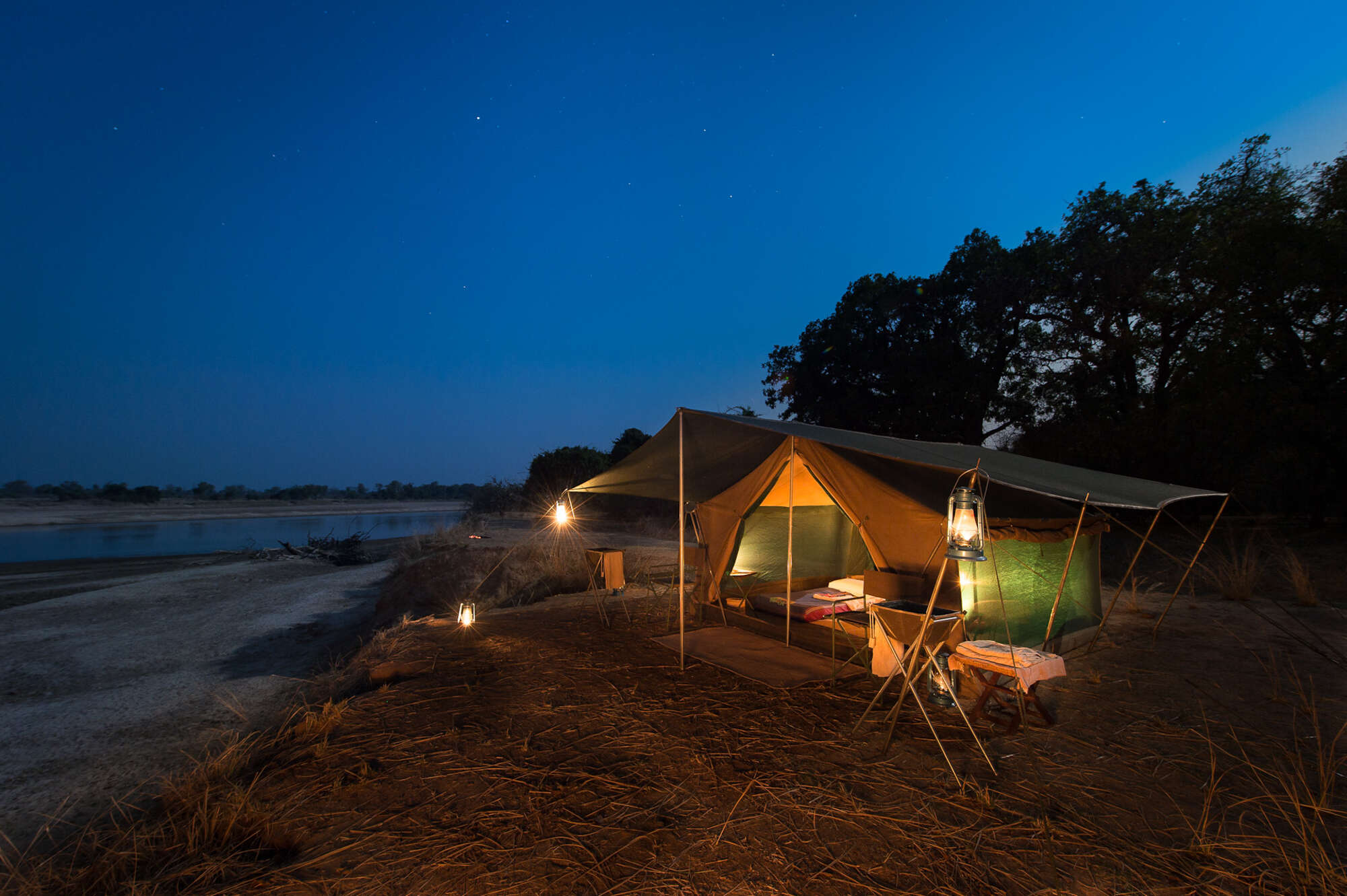About Kaingo Camp
Small, personal, and fiercely independent, Kaingo thrives on being different, and makes a great choice for photographers.
The influence of owners Derek and Jules Shenton permeates the entire camp – not least in their commitment to wildlife photography. Open-sided vehicles are kitted out with stabilisers, beanbags and camera dust covers, while a “window” seat is guaranteed on every game drive.
Then there are the camp’s stunning photographic hides, each with a different focus: carmine bee-eaters, elephants crossing the Luangwa River, hippos in a deep pool.
As if to emphasise the point, Jules’ own black-and-white photographs take pride of place in the rustic, brick-built chalets. Each of these has a tree-shaded outdoor bath, a private deck over the river – a blissful spot for a light lunch – and uninterrupted river views.
With game drives, safari walk and the hides, most camps would struggle to fit everything in, but at Kaingo, three activities a day are the norm. Top-class guiding is the norm here, too, yet it’s all very relaxed and friendly, with flexibility key to the camp’s approach. If you’d like to visit Kaingo’s community project, that, too, can be arranged.
Back at camp, don’t miss the unique bar, crafted from an ancient leadwood tree. And if you can’t get enough of the elephants, consider spending a night under the stars in the elephant hide.
Our view
If there is a "cookie-cutter template" for a safari camp, Derek and Jules have always ignored it; Kaingo operates with a style of its own – which we find a refreshing change. It's a welcoming camp, very informal and with a very relaxed feel. We've found the service to be personal, the guides engaging and knowledgeable, and the game activities well organised and productive. We love having three activities a day, and the enthusiasm that goes into these, and the hides add an extra dimension to a safari here, especially for keen photographers.
Accommodation
6 chalets
Children
Best for 12+
Open
20 May to 31 Oct
Activities

4WD Safari

Birdwatching

Cultural excursion

Fly-camping

Guided walking safari

Night drive

Sleeping under the stars
Traveller reviews of Kaingo Camp
223 real, un-edited reviews from Expert Africa's travellers.
Arrived 14 Jun 2025, 4 nights
"Kaingo Camp review"
Overall rating: Excellent
Arrived 15 Oct 2024, 4 nights
"Kaingo Camp review"
Overall rating: Excellent
Arrived 28 Sep 2024, 4 nights
"Kaingo Camp review"
Overall rating: Excellent
Arrived 10 Sep 2024, 4 nights
"Kaingo Camp review"
Overall rating: Excellent
Arrived 4 Sep 2024, 6 nights
"Kaingo Camp review"
Overall rating: Excellent
Arrived 3 Aug 2024, 4 nights
"Kaingo Camp review"
Overall rating: Excellent
Arrived 9 Jul 2024, 2 nights
"Kaingo Camp review"
Overall rating: Excellent
Arrived 1 Jul 2024, 3 nights
"Kaingo Camp review"
Overall rating: Excellent
Arrived 27 Jun 2024, 3 nights
"Kaingo Camp review"
Overall rating: Excellent
Arrived 22 Jun 2024, 3 nights
"The Sound of Hippos"
Overall rating: Excellent
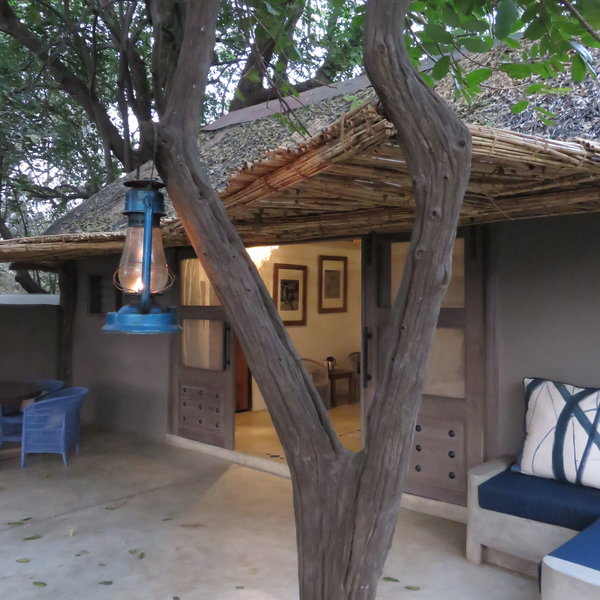
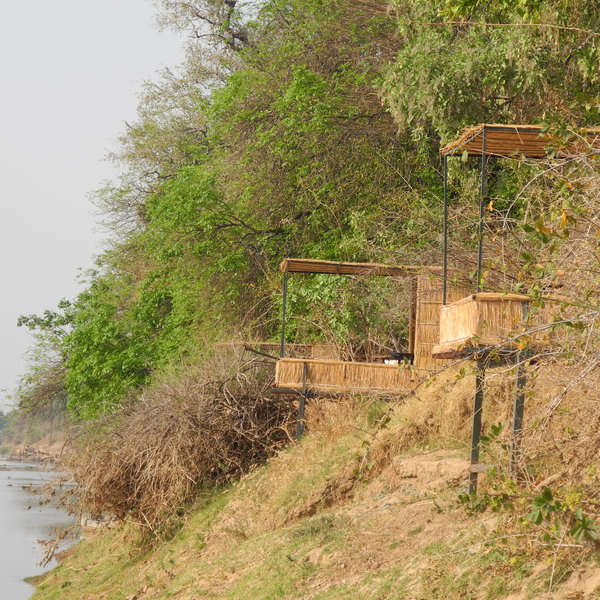
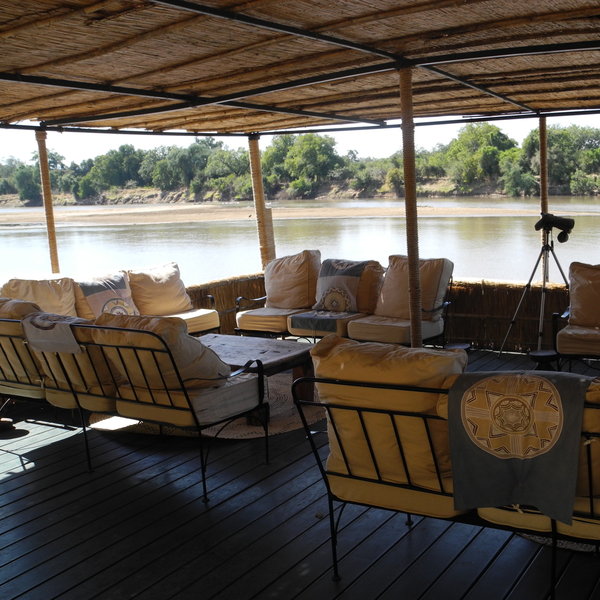
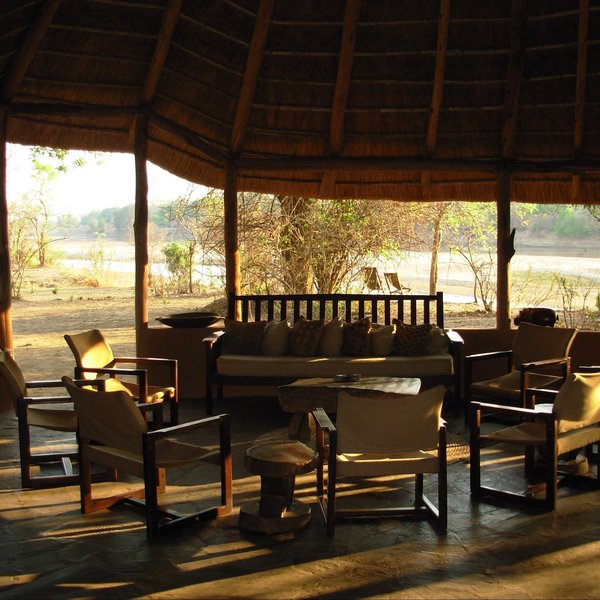
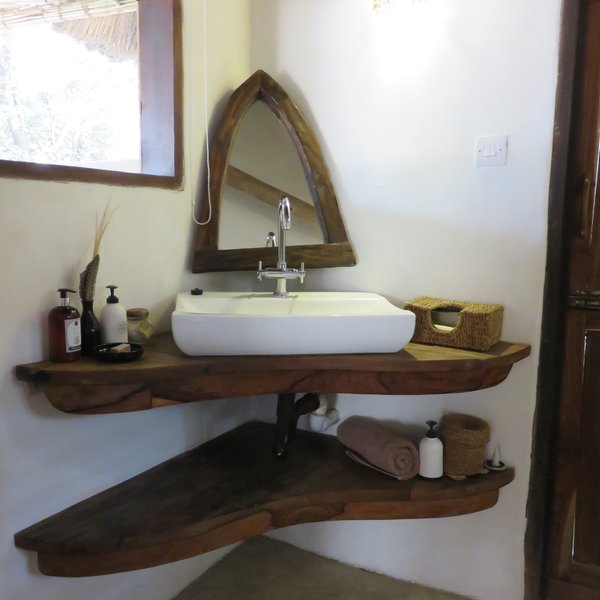
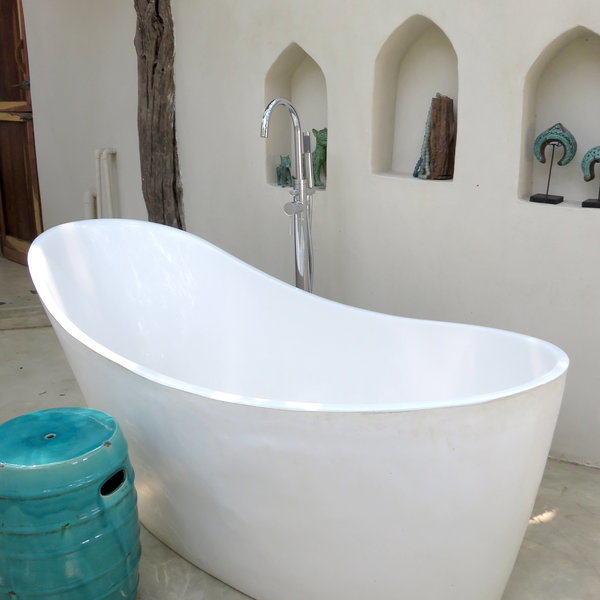

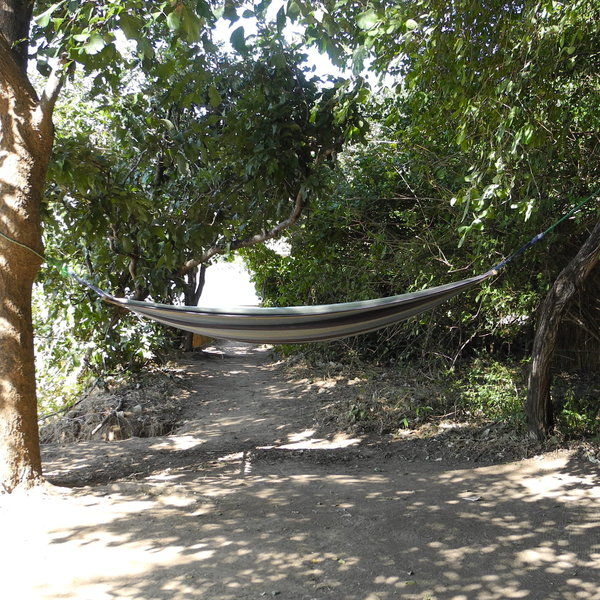
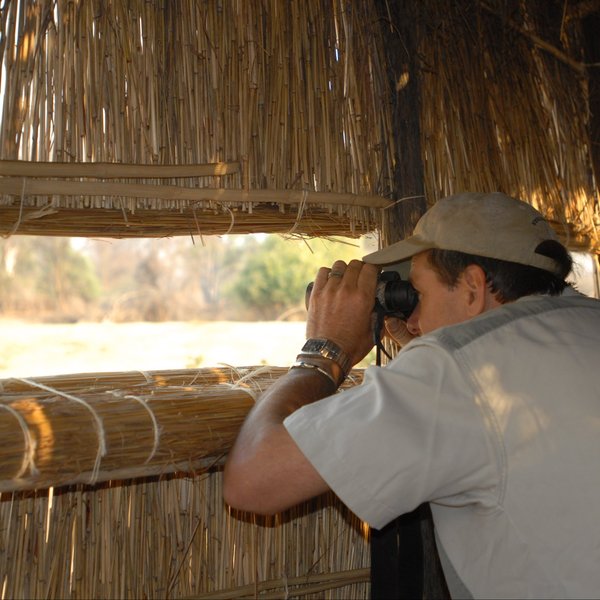
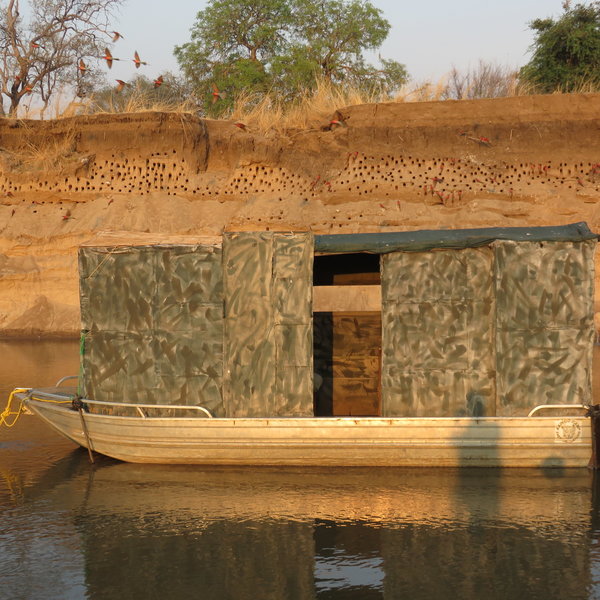
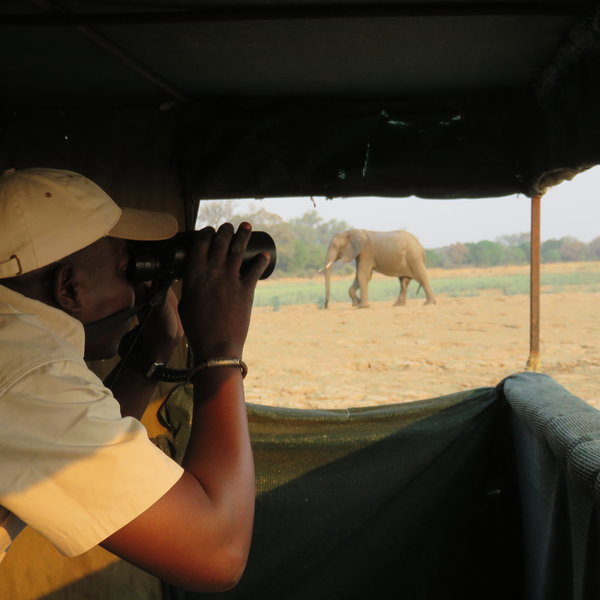
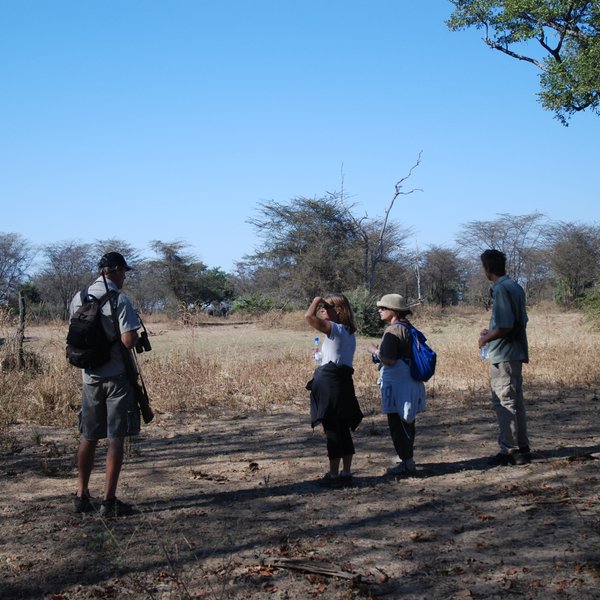
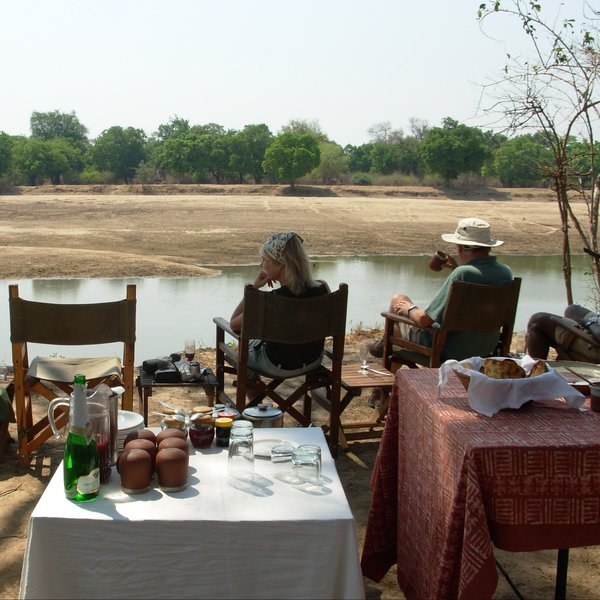
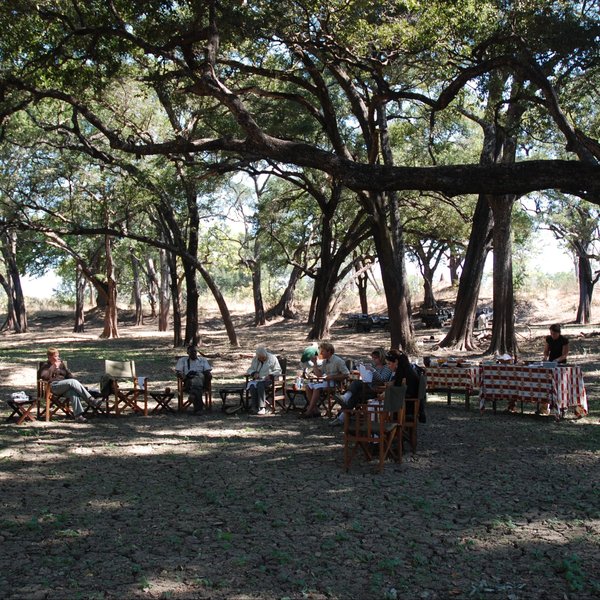
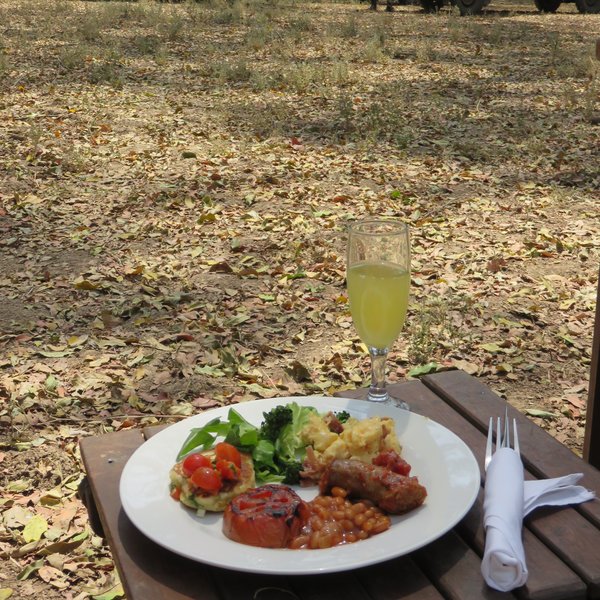
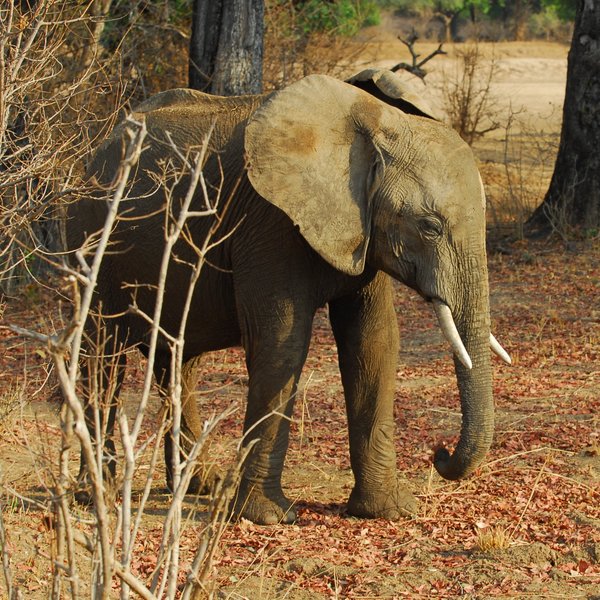

Expert Africa's gallery
When we travel we take lots of photos ourselves to give you a real and un-edited view of the safaris. See our 159 pictures and 5 videos of Kaingo Camp to get the candid view.
View gallerySafaris visiting Kaingo Camp
Just ideas, we'll always tailor-make a trip for you
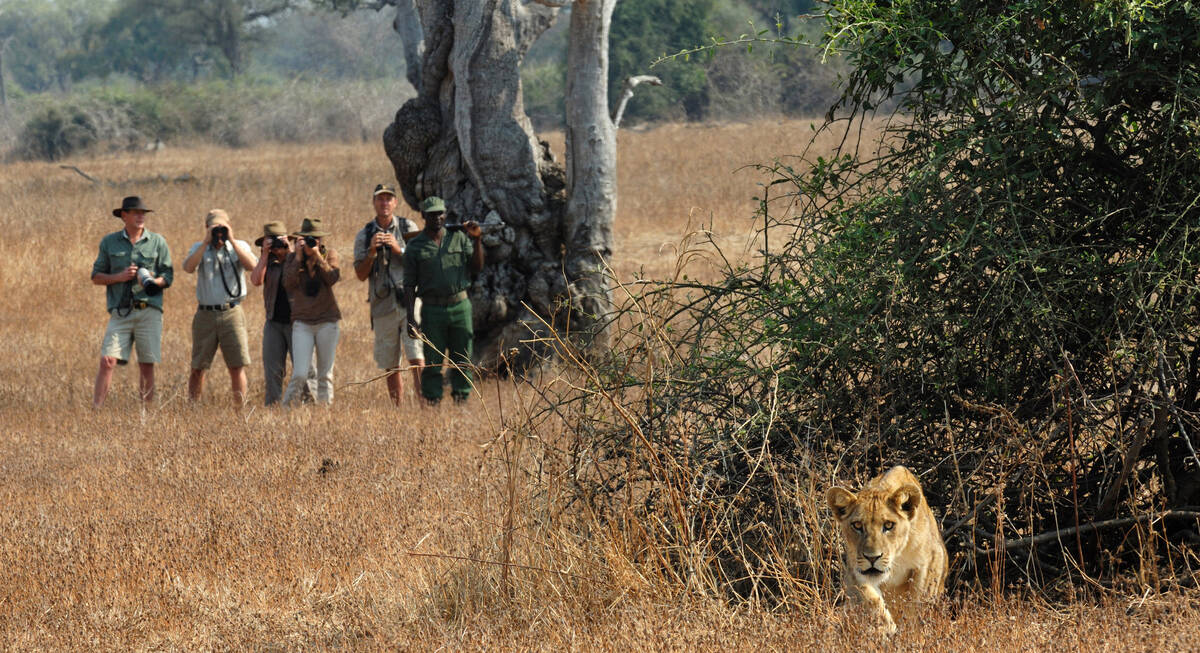
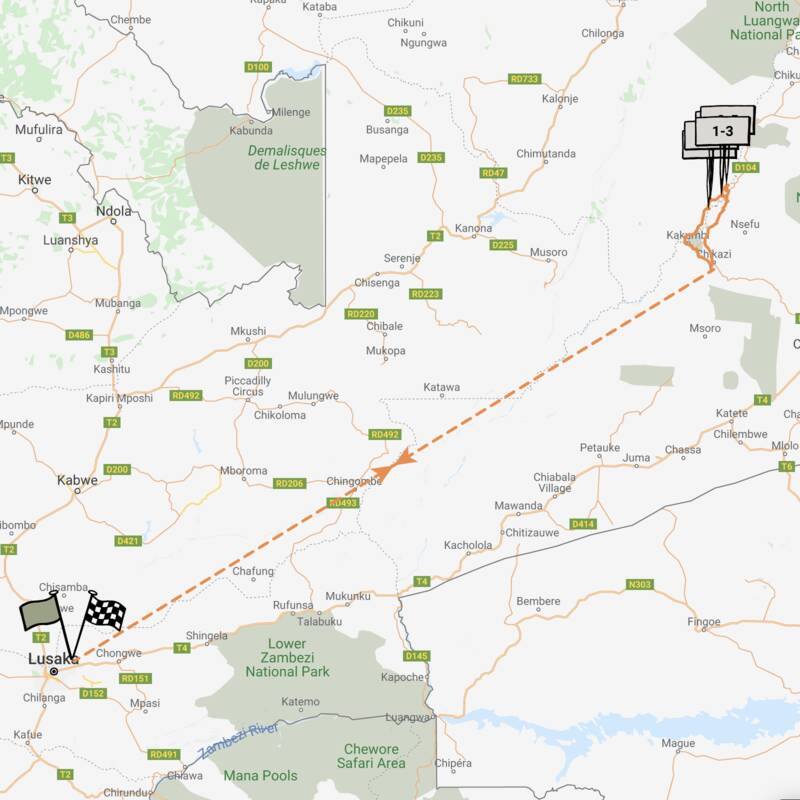
Perekani Walking Trail
10 days • 5 locations • 1 country
LUSAKA AIRPORT TO LUSAKA AIRPORT
Five smart but rustic bushcamps are the comfortable staging posts for this walking safari in South Luangwa. The route offers outstanding seclusion and rich wildlife with top-quality guiding throughout.
Visiting South Luangwa
US$9,940 - US$12,210 per person
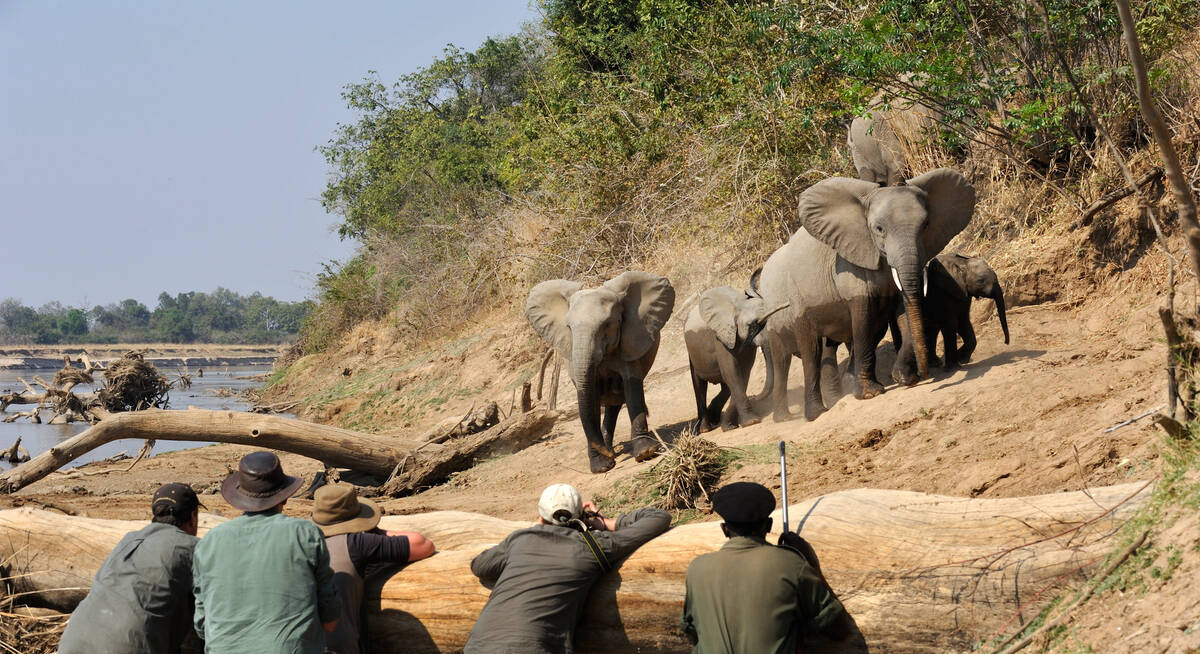
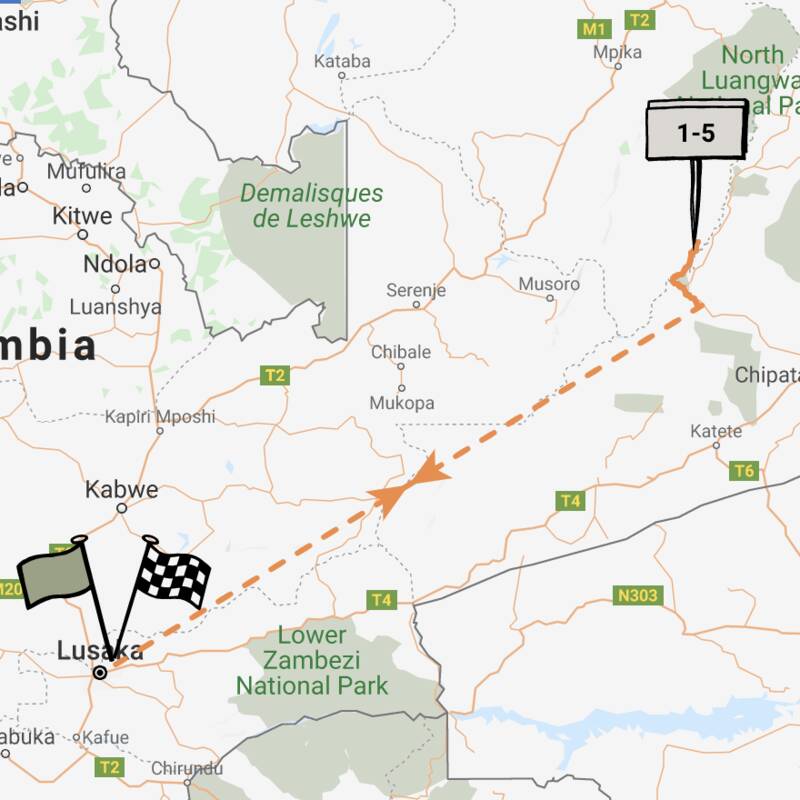
Boehm's Zebra Safari
7 days • 2 locations • 1 country
LUSAKA AIRPORT TO LUSAKA AIRPORT
This safari combines two high-quality owner-run camps in a very productive region of the South Luangwa. The guiding is excellent and with its hides this safari is perfect for serious photographers.
Visiting South Luangwa
US$8,090 - US$9,410 per person
Kaingo Camp: Our full report
The well-established Kaingo Camp overlooks the Luangwa River from beneath an old grove of ebony trees.
Owned by Derek Shenton and his family, it's one of the few independent camps remaining in South Luangwa National Park. Derek, and his engaging wife Jules, live in Lusaka and are very involved in running the camp, visiting frequently and sometimes helping out with the guiding.
There are six brick-and-thatch chalets at Kaingo, five standard and one family chalet, all of which have uninterrupted river views and their own private deck built over the river, where a light lunch is often served.
The chalets were renovated in 2017 and now have large stone verandas outside under a reed shade roof, with a day bed scattered with cushions, and a table and chairs. Decorated in light cream and blue tones, with locally designed Tribal Textiles fabrics, the chalets feature thatched roofs, stone floors with woven rugs, and sliding pale wood and mesh doors, providing plenty of light into the spacious rooms.
Furniture, from the large wooden shelving unit to the chunky headboards, is locally made, and the very comfortable beds – either twin or king-sized – are covered with cream and blue bedcovers, and surrounded by walk-in mosquito nets.
Solar-powered lamps are placed on dressing tables beside the beds, and in the cupboard you’ll find African-print dressing gowns, a wooden box to lock away your valuables plus mosquito repellant and insect spray for the room, plus a whistle, for attracting attention in case of an emergency. On the walls are framed black-and-white photos, taken by Jules, a keen wildlife photographer.
Each chalet has an en-suite bathroom with a shower, flushing toilet and basin, with hot water available all day, while outside under shady trees is a secluded outdoor bath.
The family chalet, also extensively updated in 2017, is set slightly further away from the main area, under a grove of towering Natal mahogany trees. Overlooking the river, the spacious master bedroom has an en-suite bathroom with indoor and outdoor showers and a separate bathtub. An inter-leading door connects the bedroom to the lounge and a separate cloakroom, which makes for either a roomy relaxation area for couples, or a children's bedroom - for family bookings, there is space for up to four single beds in this area, though we think it works best with just three. With its own private butler, plus optional private dining and private vehicle access, it's designed to cater for either couples looking for a more exclusive experience or to families or a group of friends.
Towards the river are private shaded decks that overlook the river, one for each chalet. Comfortable chairs and a table make these a great spot to sit and watch the river activity during the afternoon siesta.
Kaingo's lounge and dining area, locally known as a chitenge, has a thatched roof and open sides with an airy and cool feel to it. At its heart is an amazing bar crafted from the huge trunk of an ancient leadwood tree – which has been in the camp since we first visited in 1995. A sofa and light-coloured directors' chairs are arranged around a coffee table set with wildlife books and magazines, and to one side is a large wooden dining table, which is lit by lanterns at night. Just outside is the campfire, where tea and coffee are served in the early morning. A short distance behind the chitenge is a little curio shop.
Below the chitenge, built out over the river, is the lounge deck, a lovely, spacious spot with a number of comfortable chairs and sofas, several nature books, and a telescope for observing the birds and any animals along the riverbank.
Unlike most safari camps, Kaingo usually operates three activities per day. These include game drives (day and night) and walking safaris, all run by excellent guides.
There is a high density of game and birdlife in the Kaingo area, which you can enjoy from open-topped 4WD vehicles. Derek has also personally seen to grading the roads in their area, which makes for a smoother ride than usual on game drives. For keen photographers, Kaingo provides clamp stabilisers, beanbags and camera dust covers on the vehicles, and they never take more than two guests per row of seats – so you're guaranteed a 'window' seat. (Their vehicles typically have three rows with three seats in each, but the middle seat in each row is usually empty, and handy as a place to put 'kit'.)
The area around Kaingo Camp is fantastic for game, and on our most recent visit, in September 2017, we saw plenty of elephant, buffalo, puku, kudu, and lion (including the large 'Hollywood' pride, so called because they have been the focus of so many nature documentaries). Particular highlights included watching two leopards fighting over an impala kill, and three young lion cubs learning to play fight with each other.
Kaingo Camp also has a number of stunning photographic hides, which will form the basis of your third activity. These include the carmine bee-eater hide (best in September and October), which is normally a boat moored in front of a carmine colony. There is also the two-tier hippo hide, built into the riverbank beside a deep hippo-filled pool, as well as the elephant hide, overlooking a spot where elephants often cross the Luangwa River. On our last visit, a further 'mobile hide' had been set up overlooking a natural waterhole just back from the main riverbed, where we watched white-fronted bee-eaters hawking for insects, and a huge breeding herd of elephants intimidating a mischievous group of baboons. These hides help to make Kaingo a really good choice for photographers; indeed, we're told that a BBC cameraman who spent ten days in their hippo hide said it was the best hide he'd ever used for filming.
The Elephant Hide Star Bed, for exclusive use of Kaingo’s guests, is a wonderful viewing platform just next to a main elephant crossing point. Sometimes visited during the day to watch the elephants, it's more commonly used for sleep outs – a magical experience, and one we'll never forget! From your bed up on a wooden platform high in a tree, you'll lie under your mosquito net, listening to the whooping hyena, chorus of cicadas and elephants munching. Then wake in the morning to ground hornbills 'banging their drums'. Speak to us if you'd like to include this experience in your visit.
Since 2007, Derek and Jules have been working in collaboration with Mrs Hilda Hampondo on the Hanada Project, which helps orphans and vulnerable children in the Mfuwe area. Over the years, the project has resulted in the completion of a pre-school and a vegetable garden, which supplies the children with one good meal a day. The orphanage is now run in conjunction with Project Luangwa, a collaboration between several camps in the area, and visits to the projects are also an option from camp.
The Kaingo Camp team is very flexible about activities. If there's a particular hide that you want to visit, or activity that you want to do, then it is important that you make this clear to the managers when you arrive … and chat with them about when this can be arranged.
Note that Kaingo combines naturally with its sister camp, Mwamba Bushcamp, which is only a morning's walk or game drive away.
Activities
4WD Safari
Birdwatching
Cultural excursion
Fly-camping
Guided walking safari
Night drive
Sleeping under the stars
Families & children
- Attitude towards children
- Kaingo is happy to consider children over the age of 10 who are sensible and well-behaved.. Families with children under 12 years are required to have their own private vehicle, and under-12s are not permitted to join walking safaris.
- Property’s age restrictions
- Kaingo Camp prefers children over 10 years of age.
- Special activities & services
- Children receive a Kaingo Kids activity booklet on arrival.
- Equipment
- Kaingo has a dedicated family chalet, which can accommodate a family of up to six people.
- Generally recommended for children
- This is a wild camp that is better suited to older children, due to the activities on offer.
- Notes
- Children will need to be constantly supervised by their parents as the camp is on the edge of the Luangwa River – often with steep drops – and is not fenced, so animals do roam through.
Food & drink
- Usual board basis
- Full Board & Activities
- Food quality
- We've visited Kaingo Camp many times, most recently in September 2017, and each time their food has been very good. The kitchen is able to cater for vegetarian and vegan requests, as well as a range of dietary requirements. We particularly like the fact that they grow most of their own fruit and vegetables on their private property in Mfuwe, which means it is delivered fresh to the camp on a regular basis.
Breakfast, usually tea, coffee, fruit and freshly baked pancakes or muffins, is served around the campfire before the early-morning activity.
Brunch is served on your return, around 11.00am, and is generally served buffet style. As well as continental breakfast options, including French toast with home-made chocolate peanut butter, we were able to choose from a chickpea and date salad, chicken and vegetable skewers, pork sausages and grilled tomatoes, cherry tomato quiche and fish cakes with a herby dipping sauce.
Afternoon tea, with freshly baked cake or scones, and often a savoury option, along with a choice of tea, coffee or homemade iced rooibos tea, is served on the lounge deck, before heading out on your evening game activity.
In the evening, there are drinks at the leadwood bar before dinner at around 8.30pm. Served from a set menu, a refreshing chilled pea and mint soup to start with was ideal, given the heat of the day, and was followed with jerk chicken breasts, served with crushed garlic potatoes and green beans. For dessert we enjoyed a brandy chocolate cake with fresh orange and crème fraîche. - Dining style
- Group Meals
- Dining locations
- Indoor and Outdoor Dining
- Further dining info, including room service
- Room service is not available.
- Drinks included
- Filtered drinking water, soft and alcoholic drinks are included at Kaingo Camp.
Our travellers’ wildlife sightings from Kaingo Camp
Since mid-2018, many of our travellers who stayed at Kaingo Camp have kindly recorded their wildlife sightings and shared them with us. The results are below. Click an animal to see more, and here to see more on our methodology.

100% success

100% success

100% success

100% success

98% success

98% success

98% success

95% success

80% success

53% success

16% success

6% success

2% success

0% success

0% success
Getting there
- Location
- South Luangwa National Park, Zambia
- Ideal length of stay
- We recommend a minimum of 3 nights, although 5–8 nights would be ideal for a combined stay at Kaingo and its sister camp, Mwamba Bushcamp – and possibly a sleep-out night.
- Directions
- Fly to Mfuwe airport and transfer by road to camp. The drive, partly through villages and partly through the national park, takes approximately three hours.
- Accessible by
- Fly-and-Transfer
Special interests
- Birdwatching safaris
- The main deck at Kaingo and your private deck looking over the Luangwa River are great spots for birdwatching in Zambia. Between September and October, you can spot thousands of carmine bee-eaters from a special hide located below a nest site in the riverbank.
- See ideas for Birdwatching safaris in Zambia
- Photography safaris
- With specialist hides for carmine bee-eaters, hippos, elephants and general wildlife, Kaingo is ideal for photography holidays in Zambia. Their vehicles have beanbags and dust covers, and the guides have been trained how to position vehicles with photographers in mind.
- See ideas for Photography safaris in Zambia
- Wildlife safaris
- Kaingo is in an area of South Luangwa National Park with high densities of more common species, as well as endemics such as Crawshay’s zebra, Cookson’s wildebeest and Thornicroft giraffe, making this an excellent spot for wildlife safaris in Zambia.
- See ideas for Wildlife safaris in Zambia
Sustainability
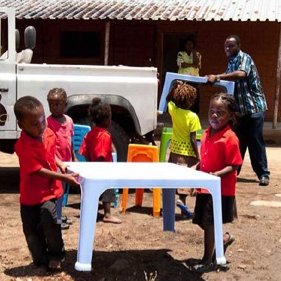
Supporting education for Zimbabwe’s orphans
Translated as ‘place of the leopard’, Kiango Camp is known for the well-established network of photographic hides, offering outstanding game concentrations while keeping away from mass tourism. With a history of three generations of wildlife conservation in Southern Africa, the owners of Kiango Camp made supporting the local community is a top priority.
Project Hanada is perhaps the leading light of the camp’s commitment to responsible tourism, which involved building a pre-school to help the orphans in the Mfuwe region. Funded directly by the owners and supplemented by guest donations, the project consisted of three phases - sinking a well for clean drinking water, constructing an office building, a long-drop toilet and a place for the children to play and eat. The camp owners also donated their tailor to teach several local ladies how to make items to sell at a local craft market, thus generating an ongoing source of income for the project and employment.
To maintain consistent funding for the project, in 2009 Kiango Camp partnered up with other like-minded lodges to form Project Luangwa. The charity oversees multiple community projects such as the building of schools and sponsoring of children in need, and is funded by the conservation and community levy charged by the participating lodges.
Project Luangwa has a policy of encouraging the community to manage their own projects to decrease reliance on aid. Therefore, the final stage of the Hanada Project consisted in making sure the community can run a business to support a pre-school for orphans and vulnerable children. Seven sewing machines have been provided and local ladies have formed a committee and plan to make items for sale such as school uniforms and other clothing.
Today, Hanada is totally managed and further developed by the community under the guidance of His Highness Chief Mnkhanya.
See more great sustainability projects in Zambia
Communications
- Power supply notes
- Kaingo has a back-up generator on site. UK-style 3-pin sockets are located in each of the rooms for charging batteries.
- Communications
- This is a bushcamp so you should consider yourself out of communication for the duration of your stay. There is no cellphone reception, but Kaingo has a phone and internet for office use, which can be used by guests in an emergency.
- TV & radio
- There are no radios or TVs here.
- Water supply
- Borehole
- Water supply notes
- Showers, baths and handbasins are plumbed in with hot and cold water available. There are flush toilets in each bathroom.
Health & safety
- Malarial protection recommended
- Yes
- Medical care
- The closest doctor is in Mfuwe (1¼ hours’ fast drive away). For emergencies Kaingo has links to a flying-doctor service.
Canoe transfer warning: Canoe river crossings are arranged on transfers between Kaingo Camp and Tafika or Nsefu camps. Guests, assisted by the Kaingo team, will transfer across the Luangwa River on a canoe taking 1-3 minutes. Please be aware that no life jackets are provided for this crossing. - Dangerous animals
- High Risk
- Security measures
- Guests are not allowed to walk around alone after dark and are escorted to their chalets at night. There is a whistle next to each bed in case of an emergency.
- Fire safety
- There are fire extinguishers in the main area, kitchen, and behind each chalet. Fire hoses are also dotted around the site.
Useful info
- Disabled access
- On Request
- Laundry facilities
- A complimentary laundry service is included, except for ladies’ underwear, for which washing powder is provided in the bathrooms.
- Money
- No exchange facilities are offered.
- Accepted payment on location
- Payments for any extras may be made in cash; ideally in Zambian kwacha, but US dollars, UK pounds and euros are also accepted. The camp is unable to take card payments.
Plan and book your trip with Expert Africa
All of our trips are tailor-made, so we'll always adapt them to suit you. Talk to an Expert and let us plan and arrange your perfect trip.

Talk to an Expert
Call or email us now! We’ll match you with the Specialist in our team who is best suited to help you. Then together we can start planning your trip.

Set up your itinerary
Based on our experience and your ideas, your specialist will create a detailed, costed itinerary. We’ll refine it together, until we have a trip that you’re perfectly happy with.

Prepare for your trip
The same Specialist will make the seamless arrangements for your trip, send you detailed travel documents, and be available to answer any questions before you depart.

Travel with peace of mind
After you set off, you’ll be cared for by our partners in Africa, most of whom have worked with Expert Africa for decades. And if you ever need us urgently, we’re available 24/7.

When you return
We love to learn about your trip, and so will always be grateful if you’ve the time to give feedback to your Specialist when you return.
Kaingo Camp's location
Look closer at the environment and surroundings of Kaingo Camp.
Excursions from Kaingo Camp
Optional extra day-trips and excursions possible whilst you're staying at Kaingo Camp. Talk to us: these are usually best arranged before you go.
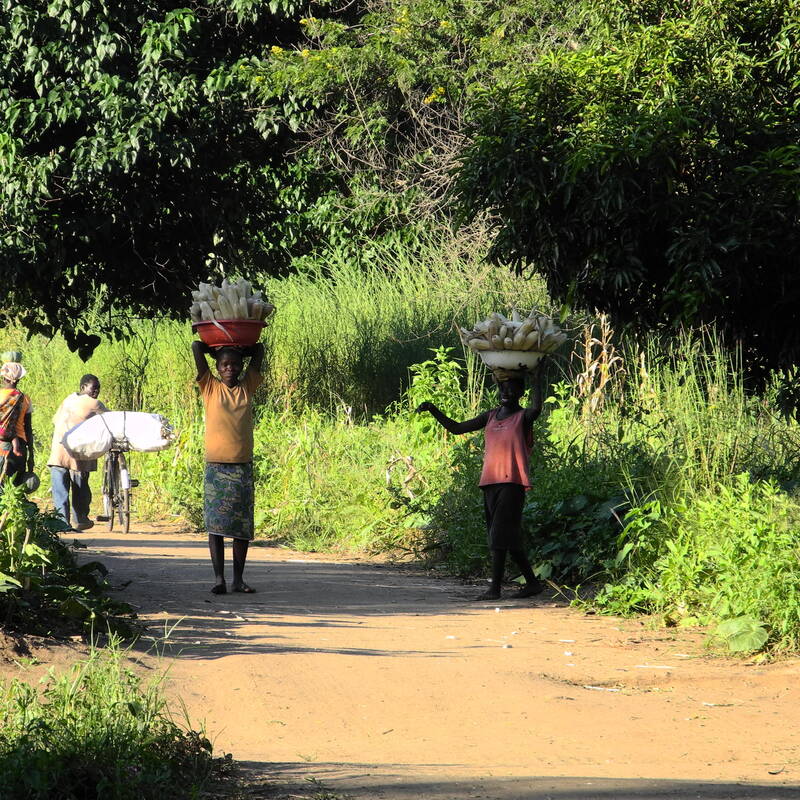
Kawaza Village Visit
Two to three hours
Just outside Zambia's South Luangwa National Park lies a normal, working rural African village which is open and welcoming to visitors to the Luangwa valley. There is nothing artificial or contrived about Kawaza Village, and it offers a rare opportunity to experience and appreciate Kunda culture, and meet local Zambians.
More about Kawaza Village Visit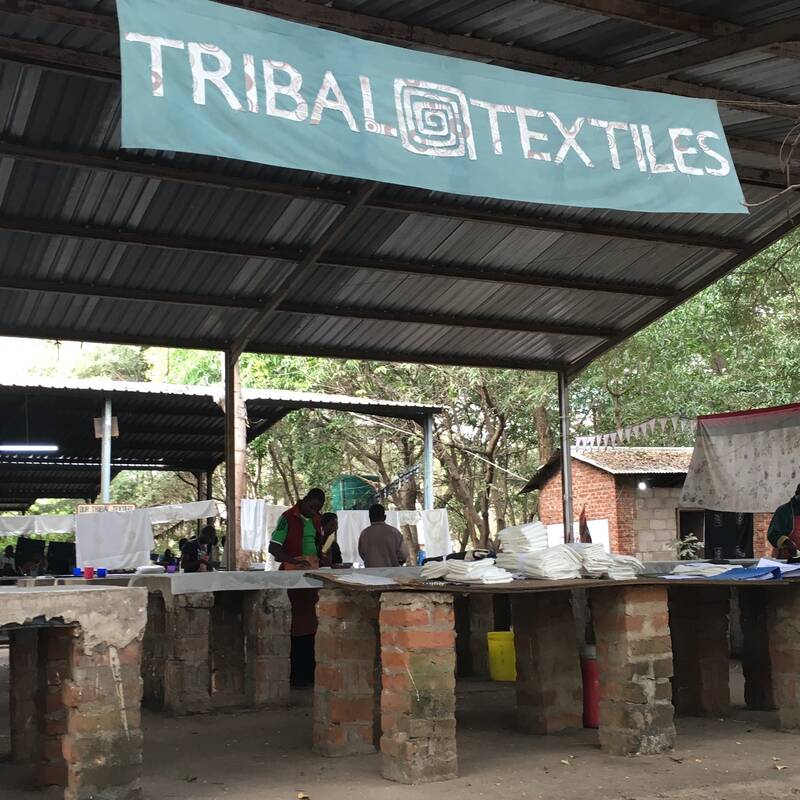
Tribal Textiles Tour
One - two hours
Visit the Tribal Textiles workshop, where hand-painted textiles are produced by more than a hundred local people. The workshop is close to Mfuwe Airport, so is ideally placed for a stop en route to/from the South Luangwa. With products ranging from cushion covers to bags and T-shirts, it's a great place for souvenir shopping while at the same time supporting the local community.
More about Tribal Textiles TourOther lodges in South Luangwa National Park
Alternative places to stay in this same area.
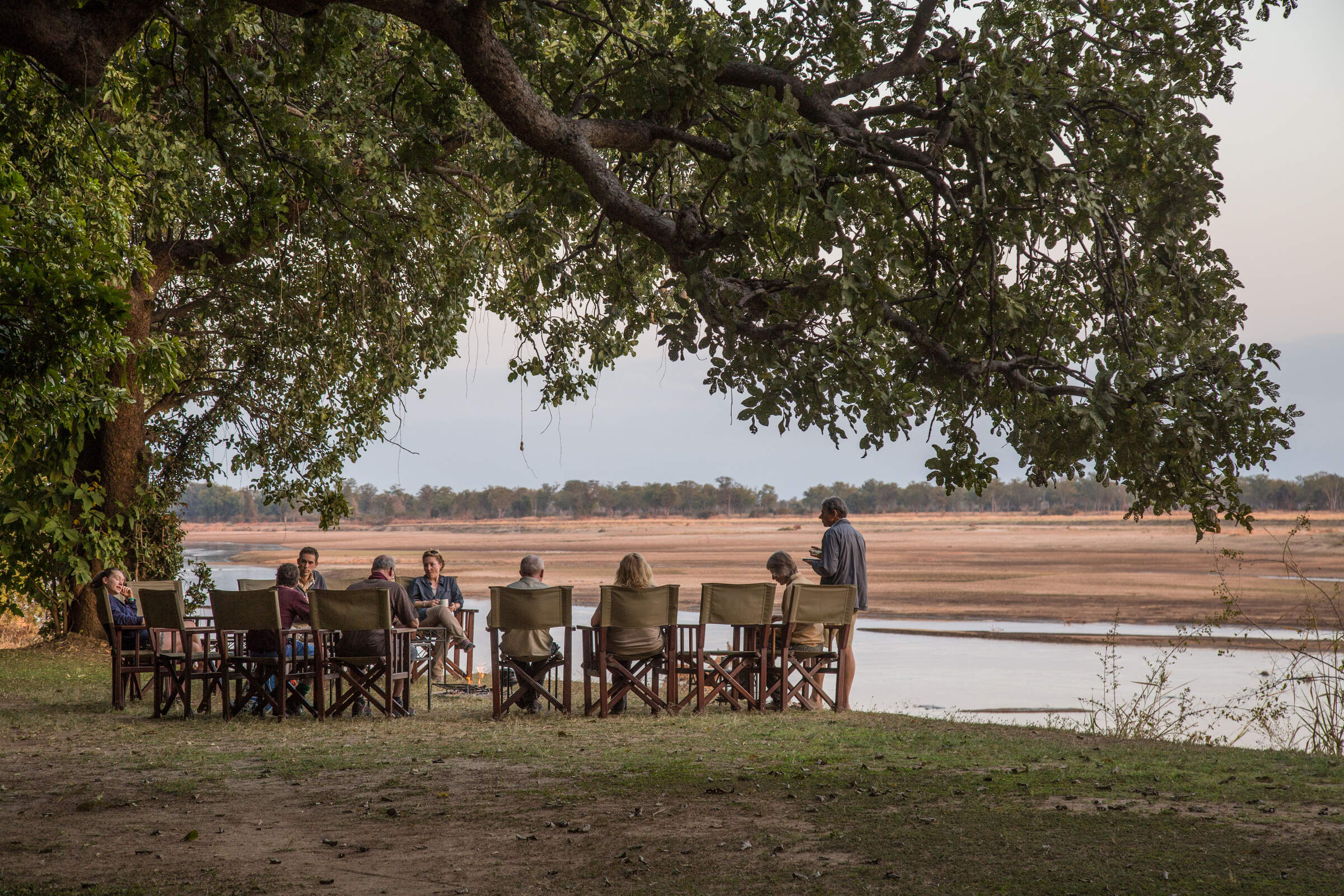
Tafika
One of the best camps in Zambia, Tafika is naturally built, combining excellent service and food with top guiding skills for a superb wildlife experience.
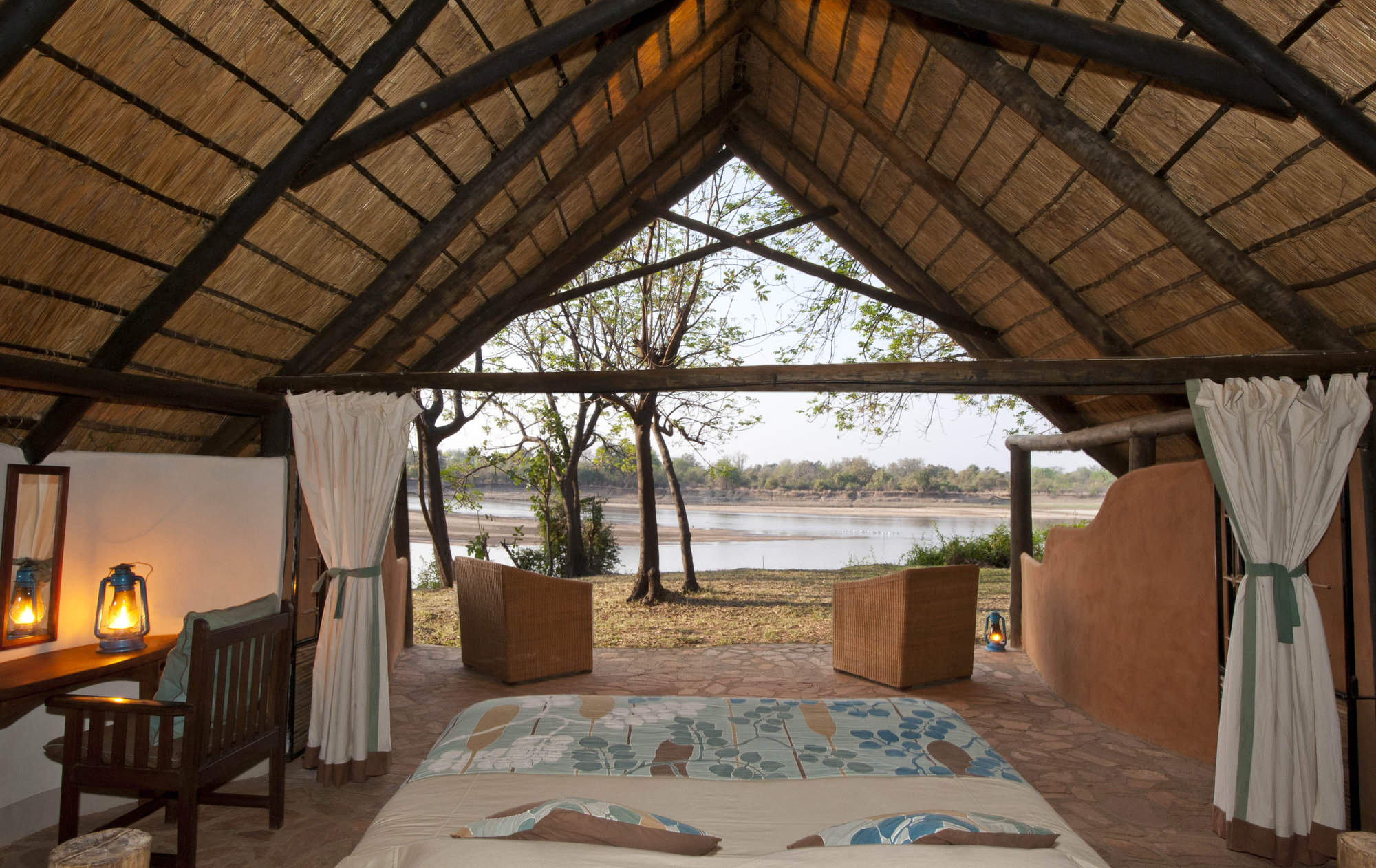
Nkwali
On the banks of the Luangwa River, with its own access to the national park, the intimate Nkwali is open year round.
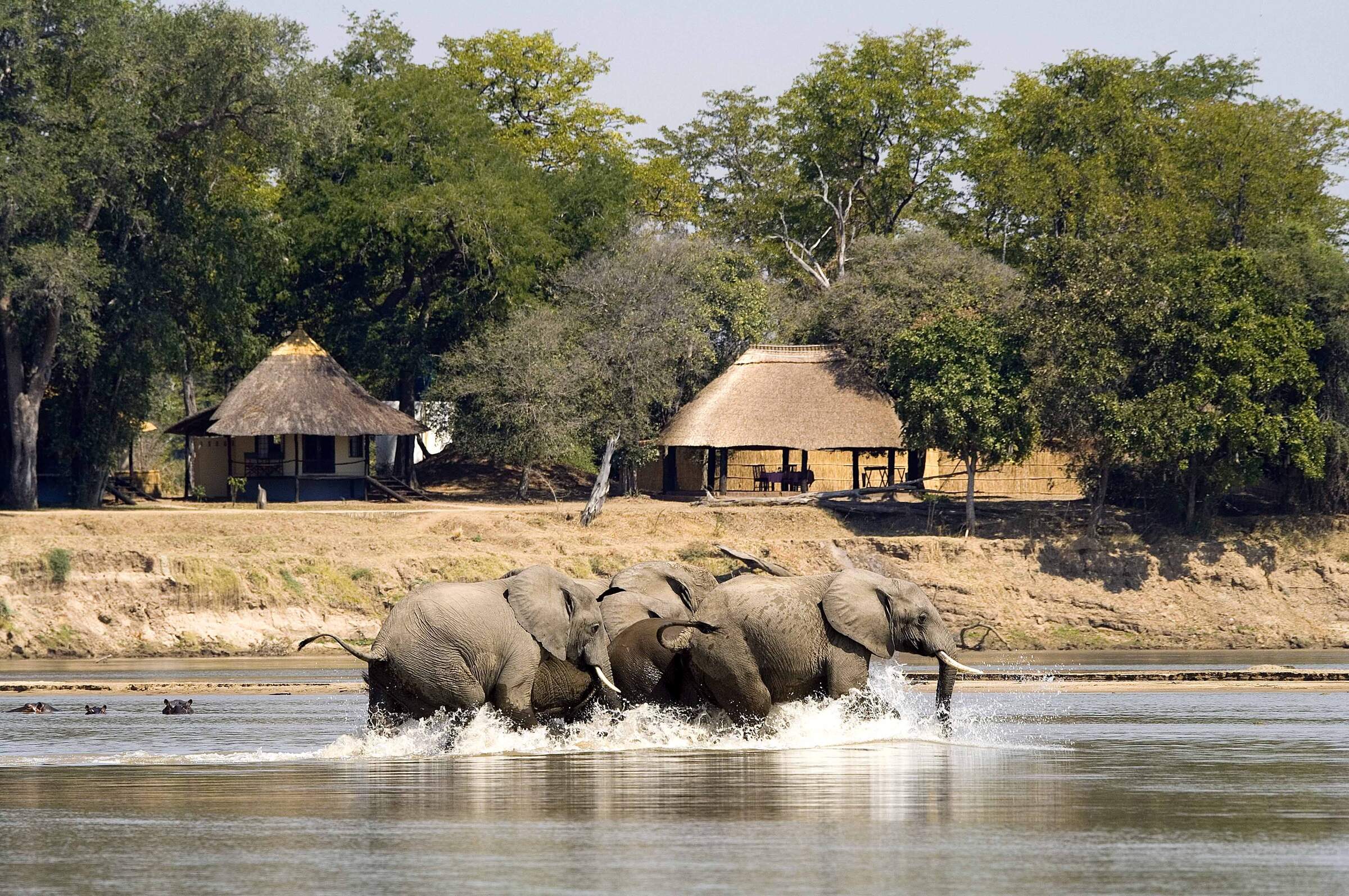
Nsefu
One of the Luangwa's oldest camps, Nsefu is a great safari camp in a remote, beautiful and game-rich location with top-rate guiding.
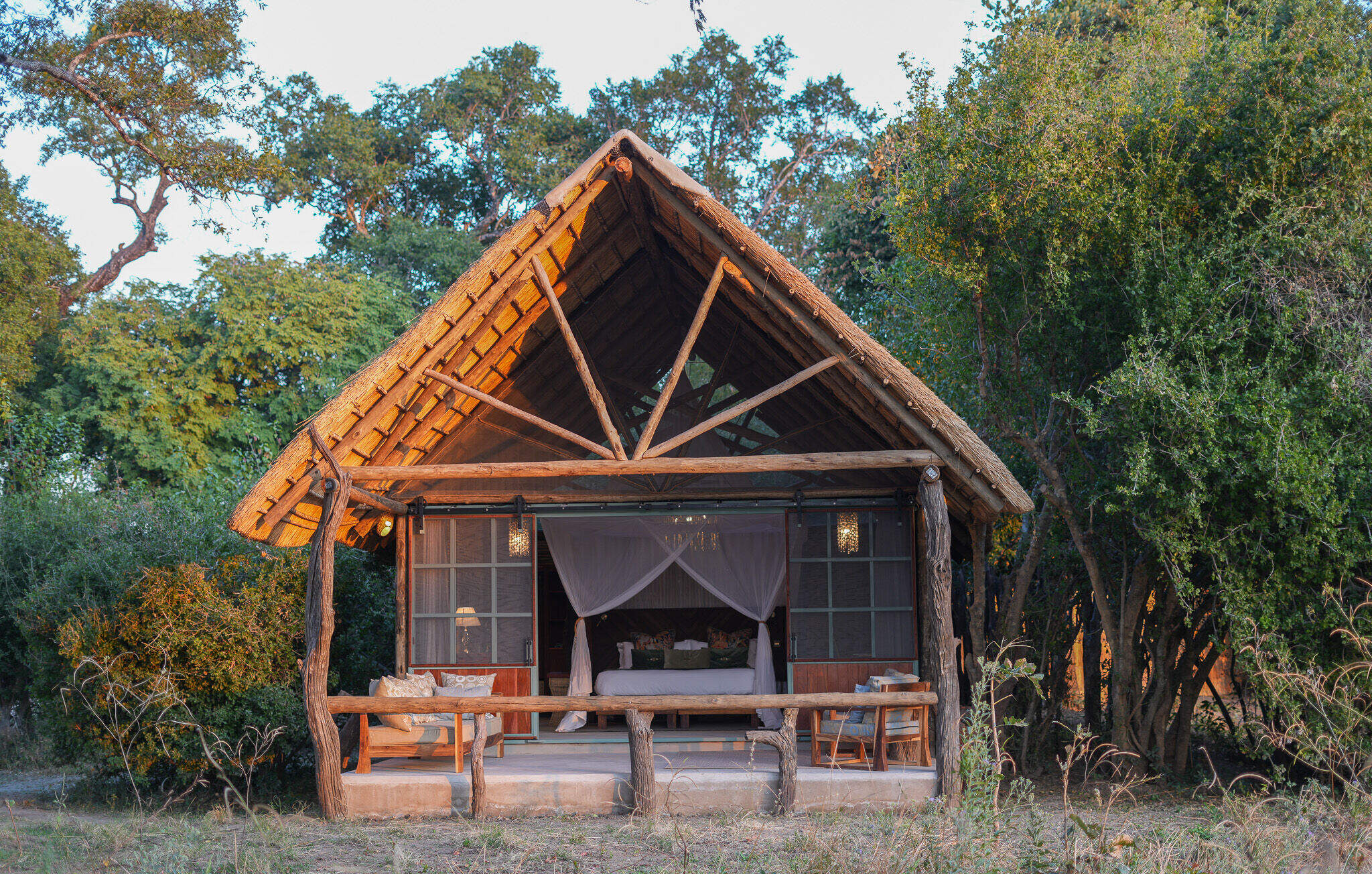
Mwamba Bushcamp
Small, remote and owner-run, Mwamba offers first-class walking, 4WD safari drives and superb hides, with excellent guides and a real bush feel.
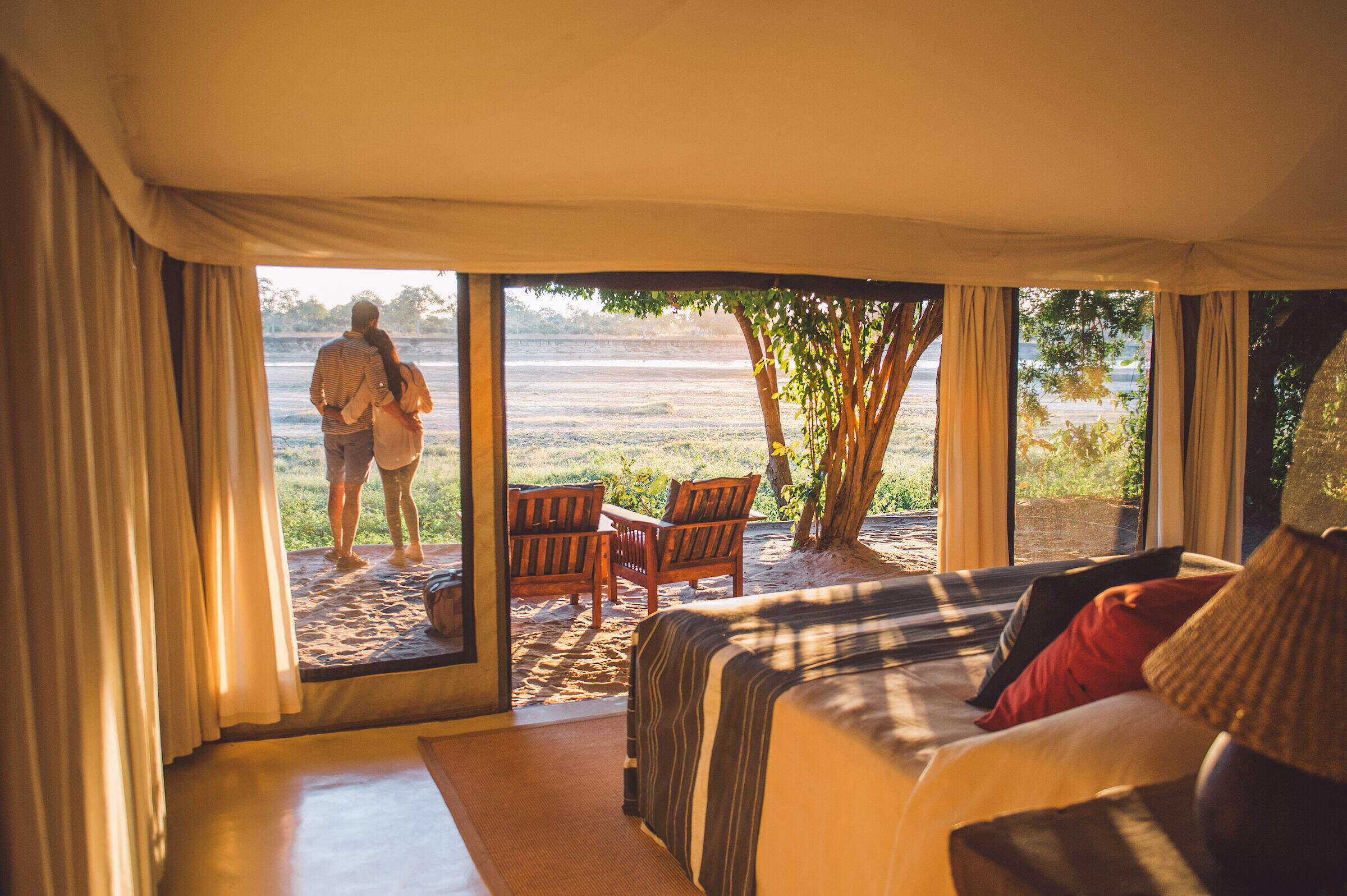
Tena Tena
One of the Luangwa's best camps, in a beautiful, remote bush location, Tena Tena is very small, exceedingly well-run and has top-rate guiding.
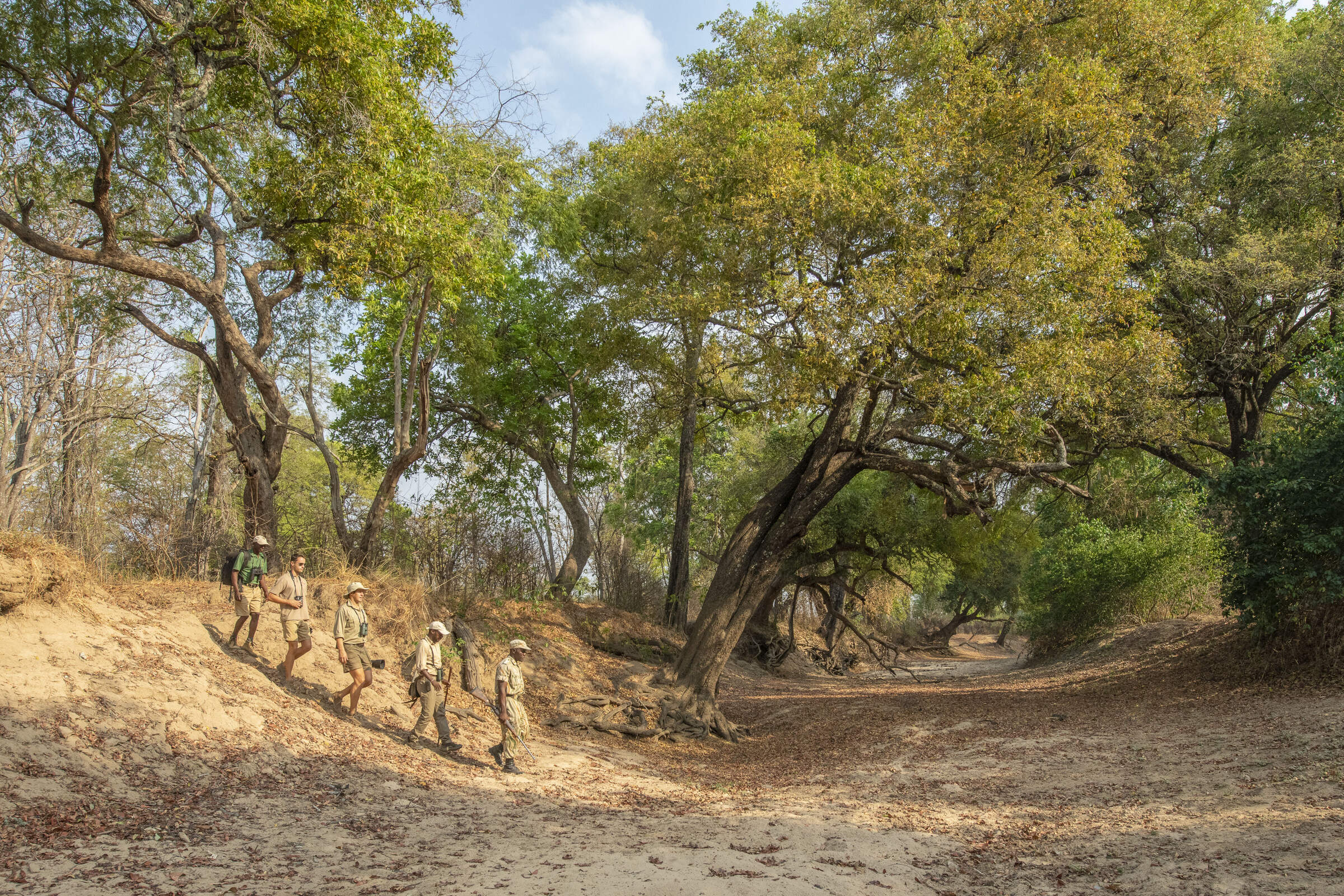
Chikoko Tree Camp
Chikoko Tree Camp is an excellent small, rustic bushcamp that concentrates on walking safaris, and is run by a top-quality operation.
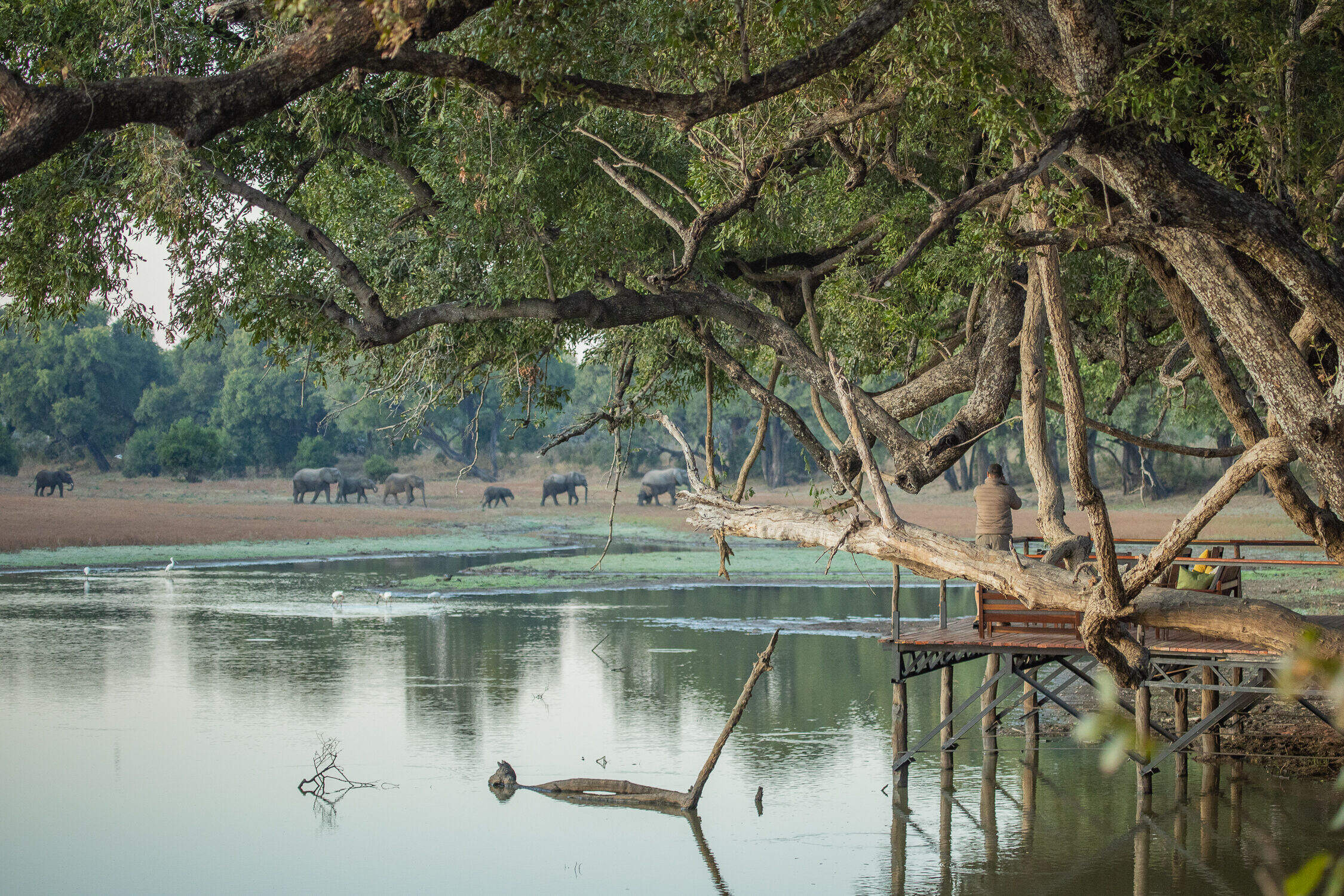
Big Lagoon Camp
Big Lagoon Camp is a great little rustic bushcamp built to high standards that focuses on excellent walking safaris, with the emphasis on top wildlife guides.
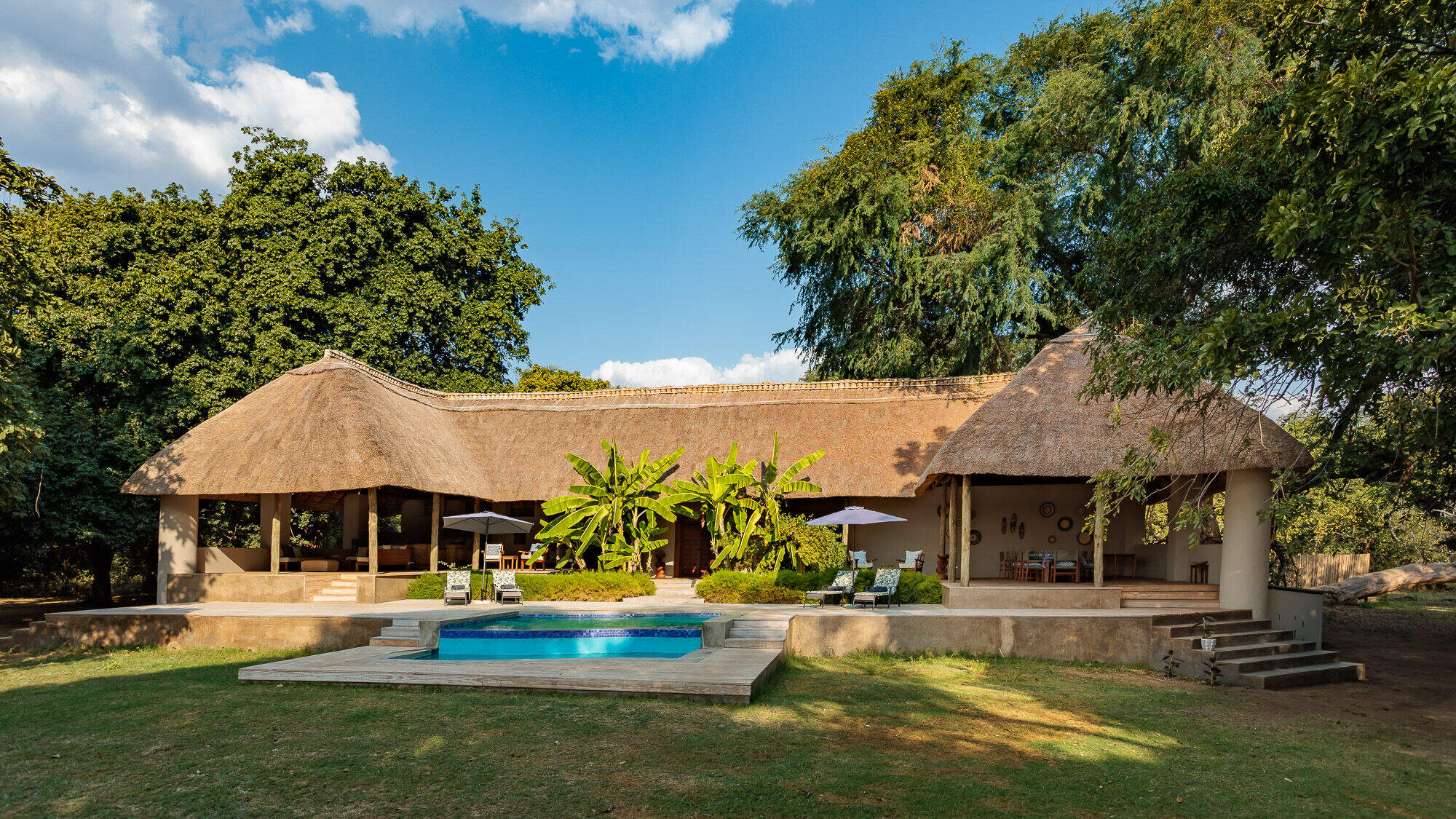
Luangwa River Camp
Luangwa River Lodge is a small and consciously stylish lodge in the Mfuwe area, overlooking the Luangwa River and the South Luangwa National Park beyond – an area renowned for great game.
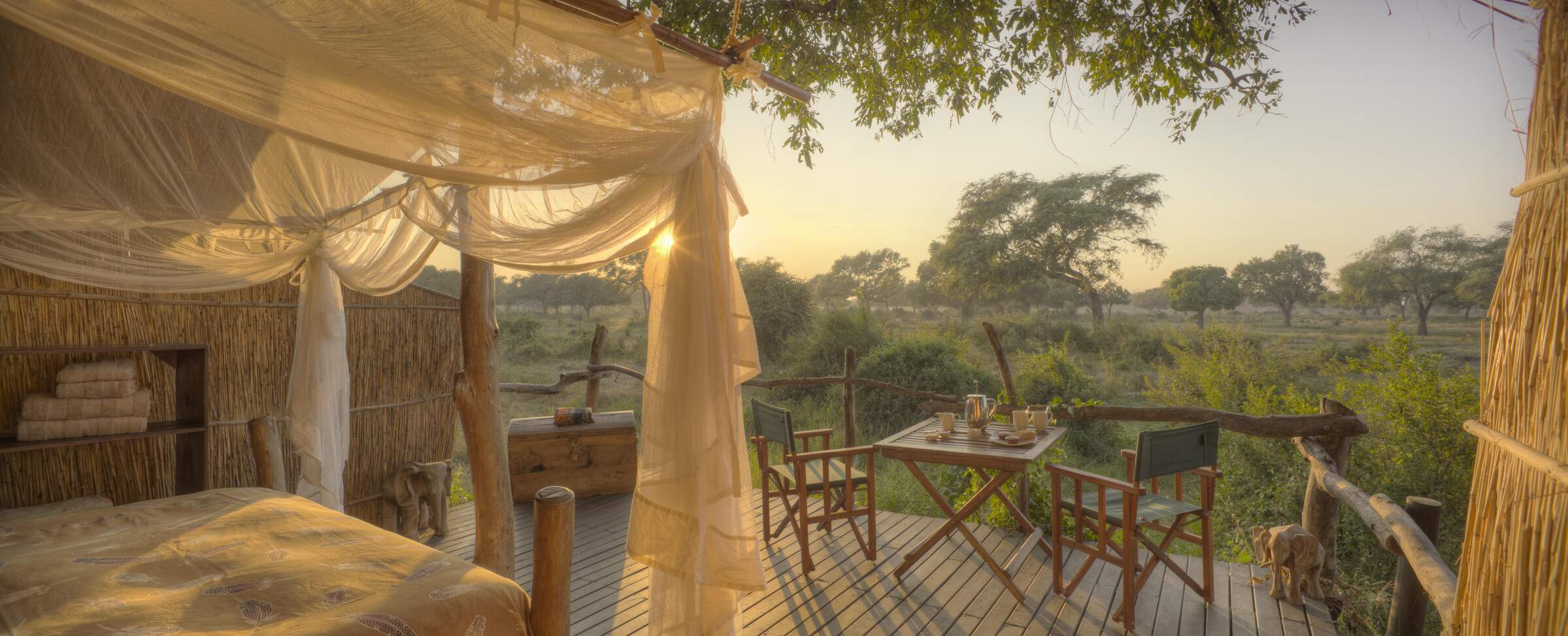
Flatdogs Camp
A relatively big safari camp, Flatdogs offers value for money with great guiding and good food in a comfortable, relaxed setting.
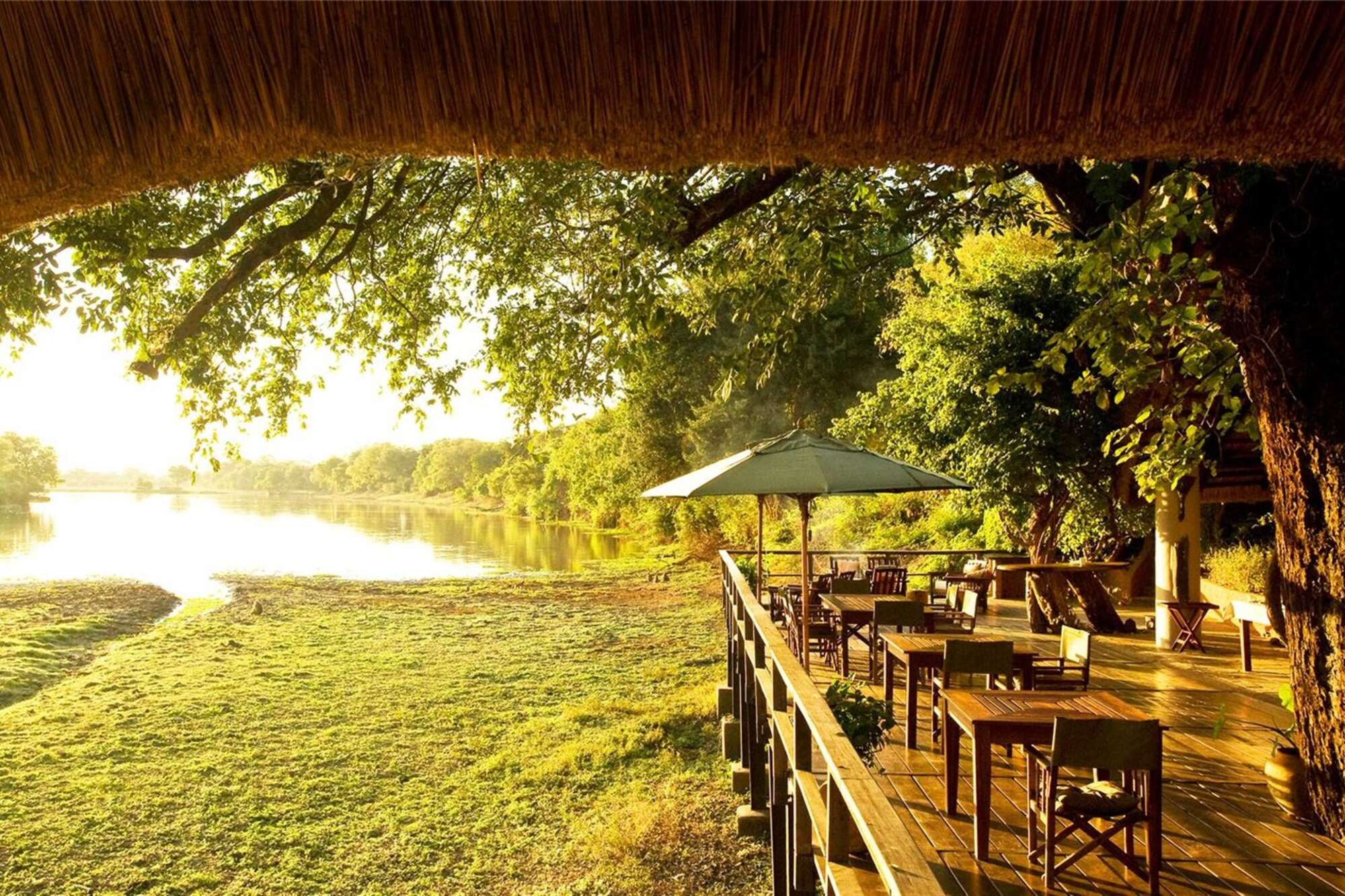
Kapani Lodge
Kapani Lodge is now the main office base for Norman Carr Safaris, one of the Luangwa's oldest safari operations.
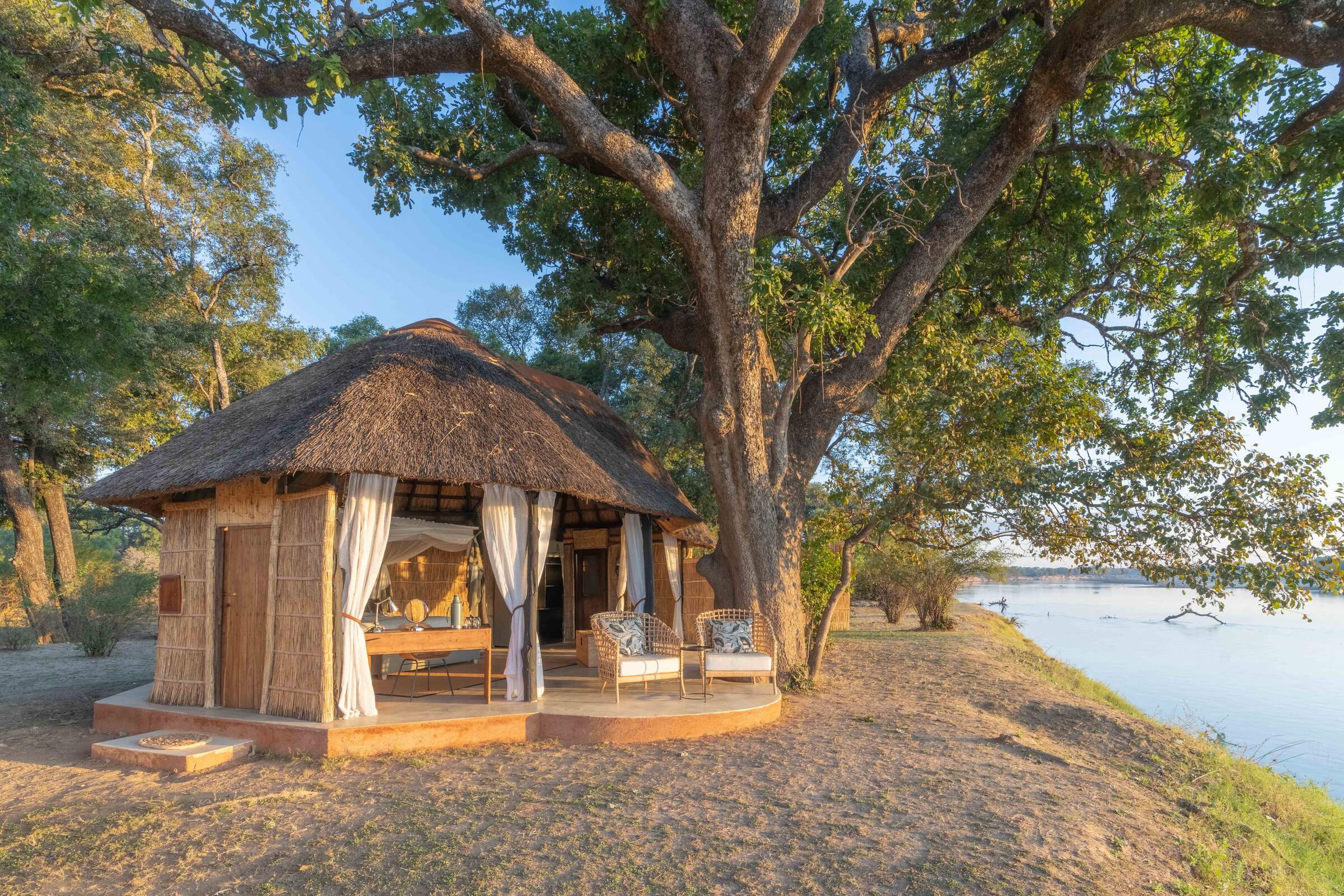
Mchenja Bushcamp
Set in a shady ebony grove on the banks of the Luangwa, Mchenja is a smart tented bushcamp. It combines well with Kakuli and Nsolo – its sister camps with a focus on walking safaris.
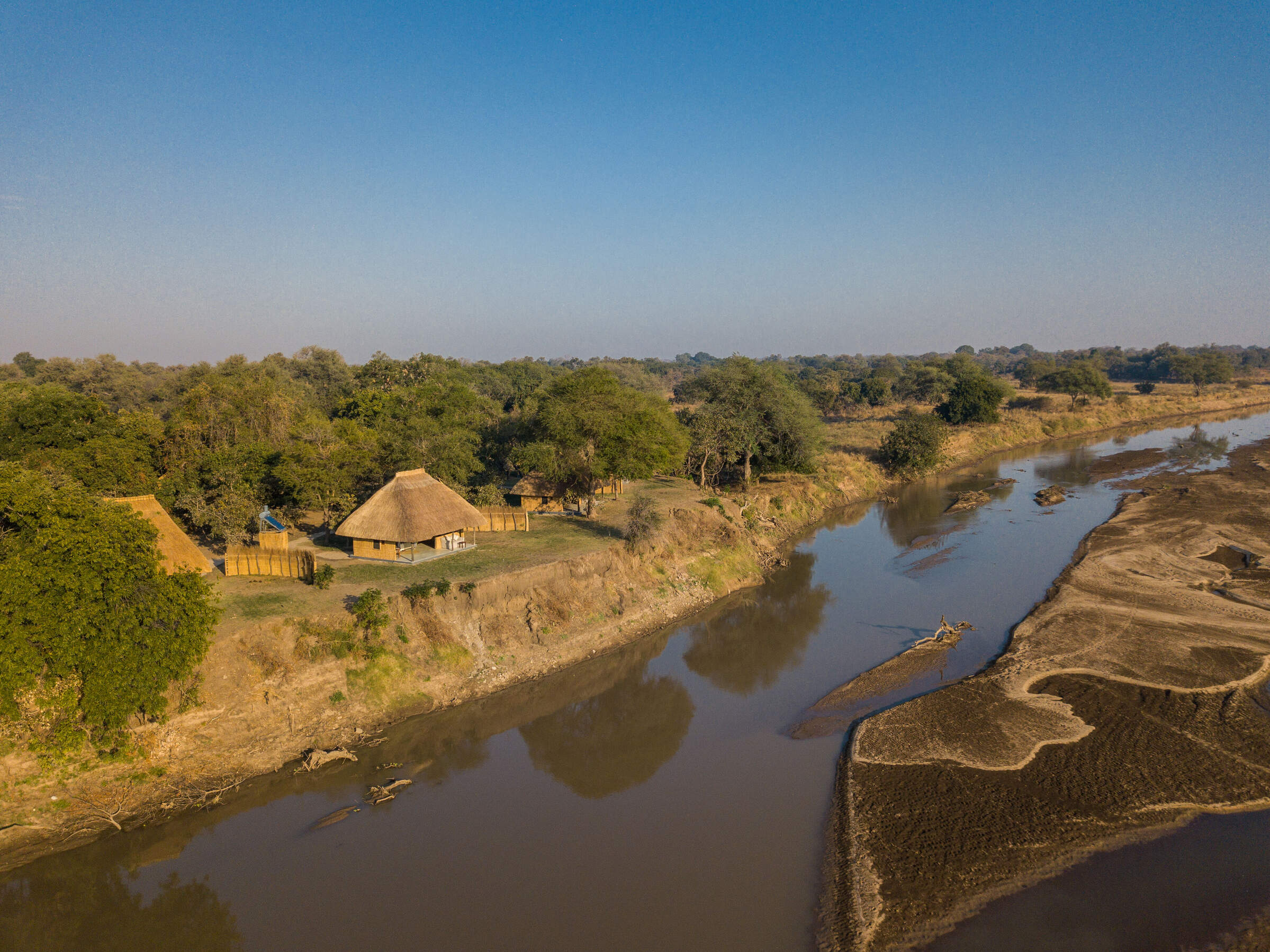
Kakuli Bushcamp
Beside the Luangwa River, Kakuli is a comfortable tented bushcamp offering 4WD safaris and walking safaris – the best of which are camp-to-camp walks linking Kakuli with its nearby sister camps.
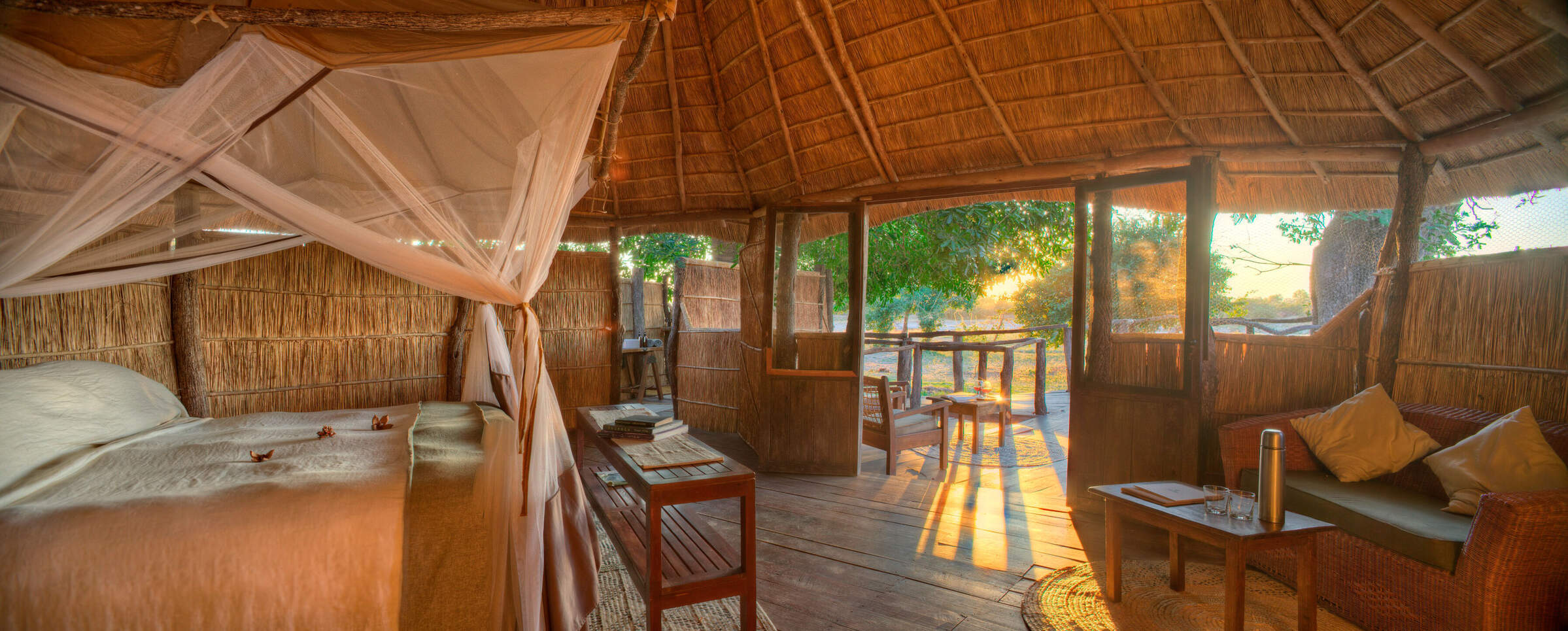
Nsolo Bushcamp
Nsolo is a small, comfortable bushcamp overlooking one or two pools in the usually dry Luwi riverbed. It concentrates on walking safaris in an interesting and diverse area, led by a knowledgeable guide.
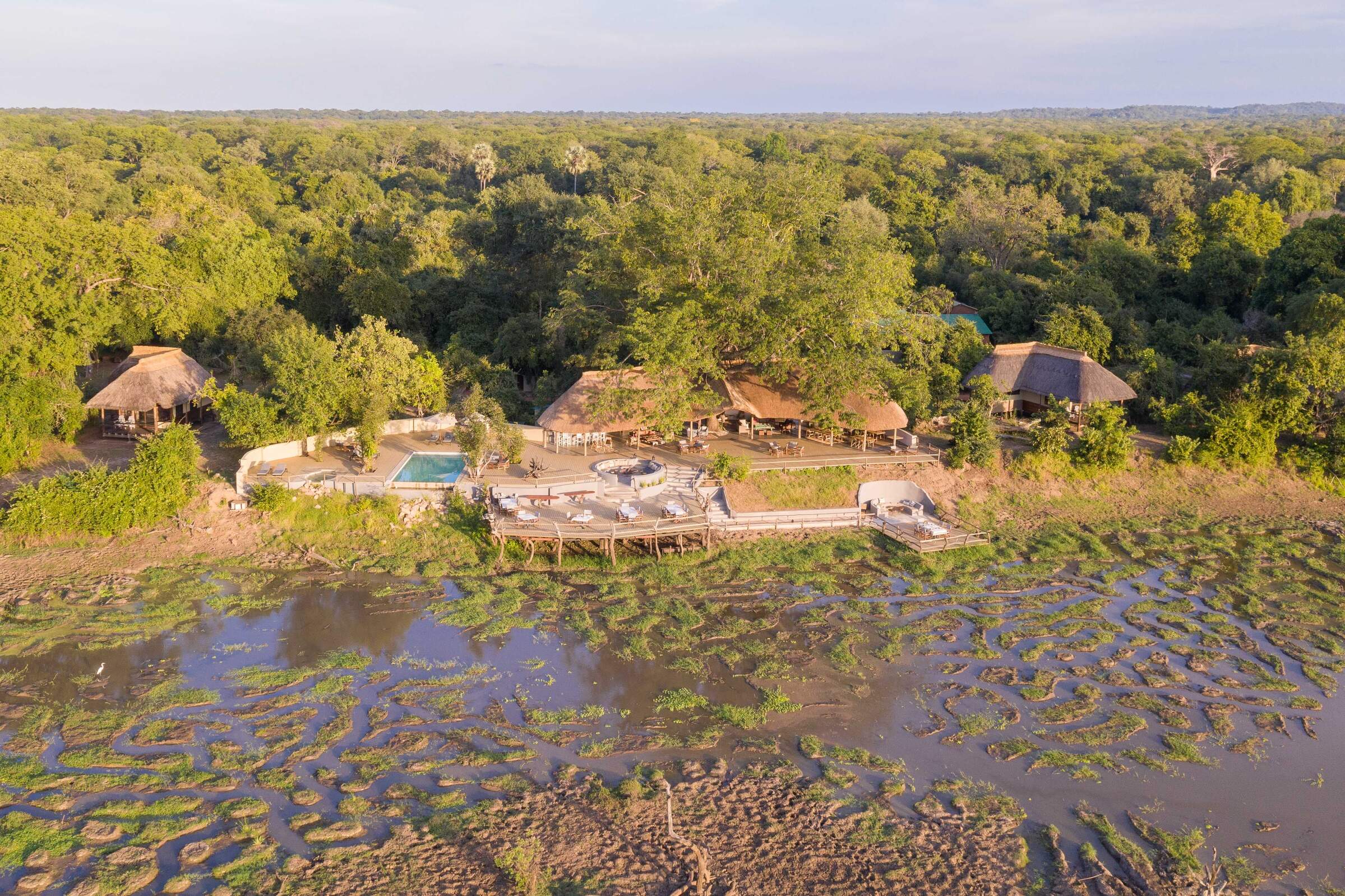
Kafunta River Lodge
Kafunta is a laid-back, friendly and good-value lodge on the outskirts of South Luangwa National Park.
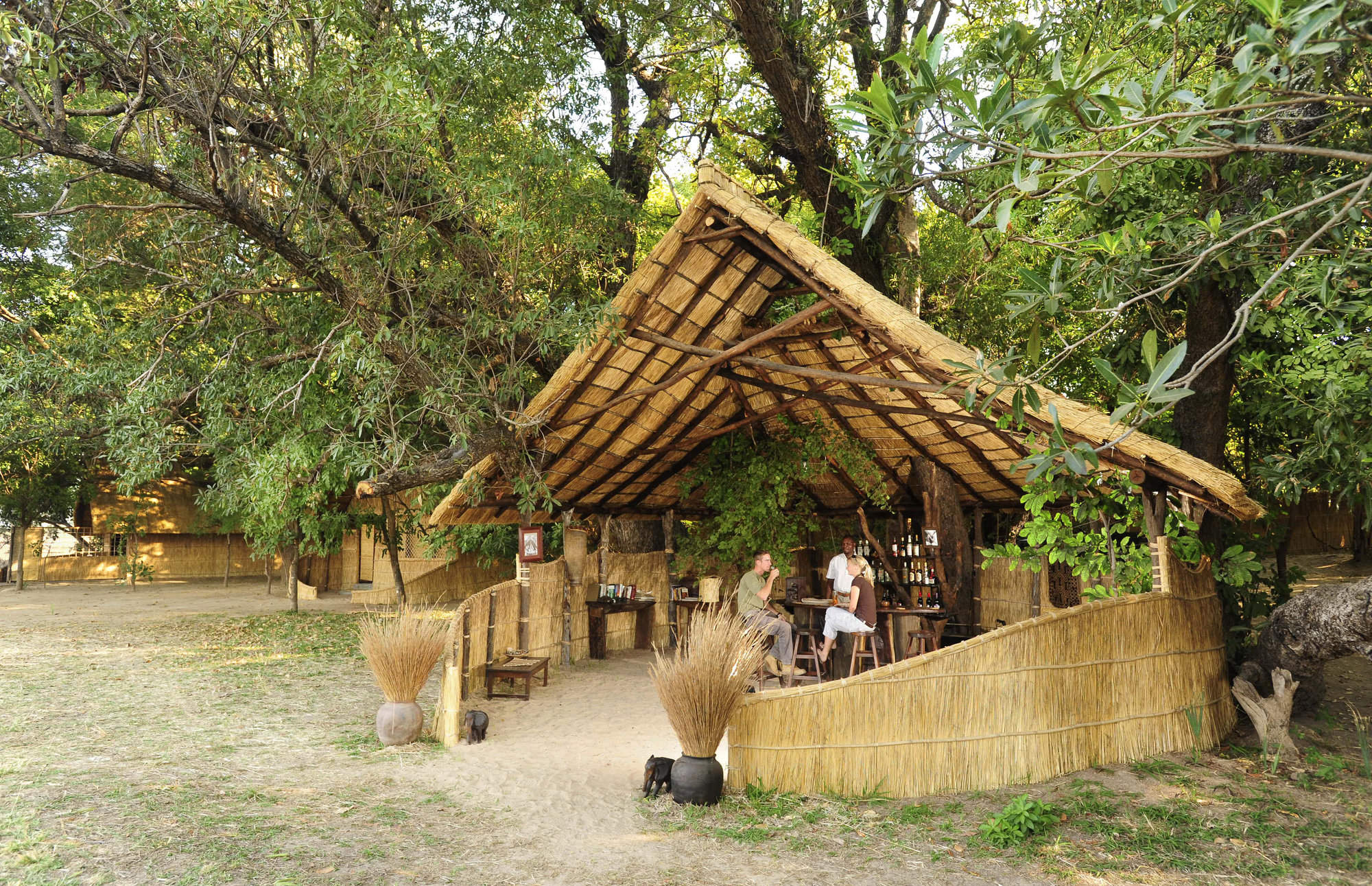
Luwi Bushcamp
In a remote part of the South Luangwa National Park, Luwi is a rustic bushcamp whose emphasis is on walking safaris with great guiding and a chance of seeing some rarely seen and elusive antelope.
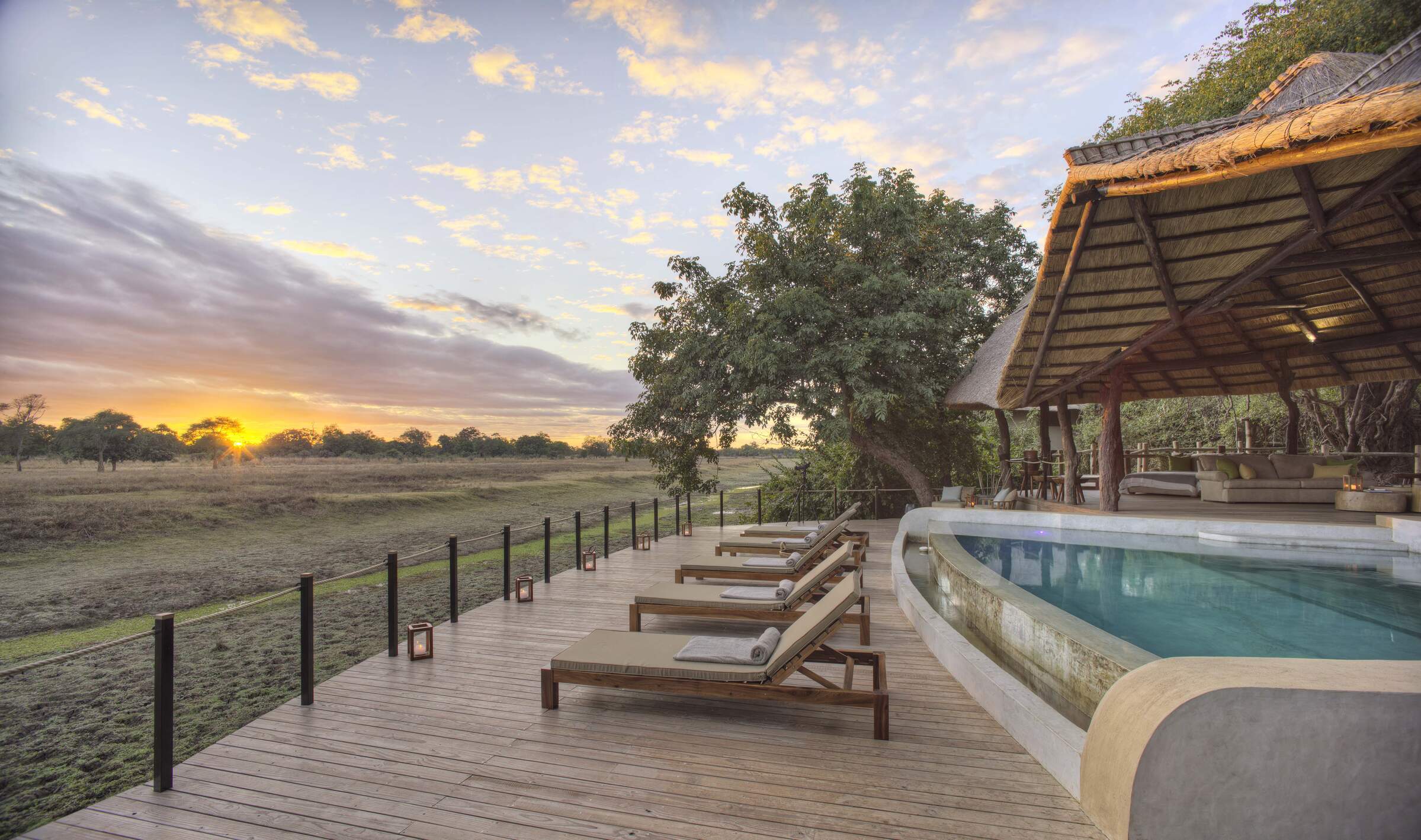
Lion Camp
Lion Camp is an established and comfortable camp with a swimming pool, located near to the game-rich Lion Plain in the northern part of South Luangwa National Park.
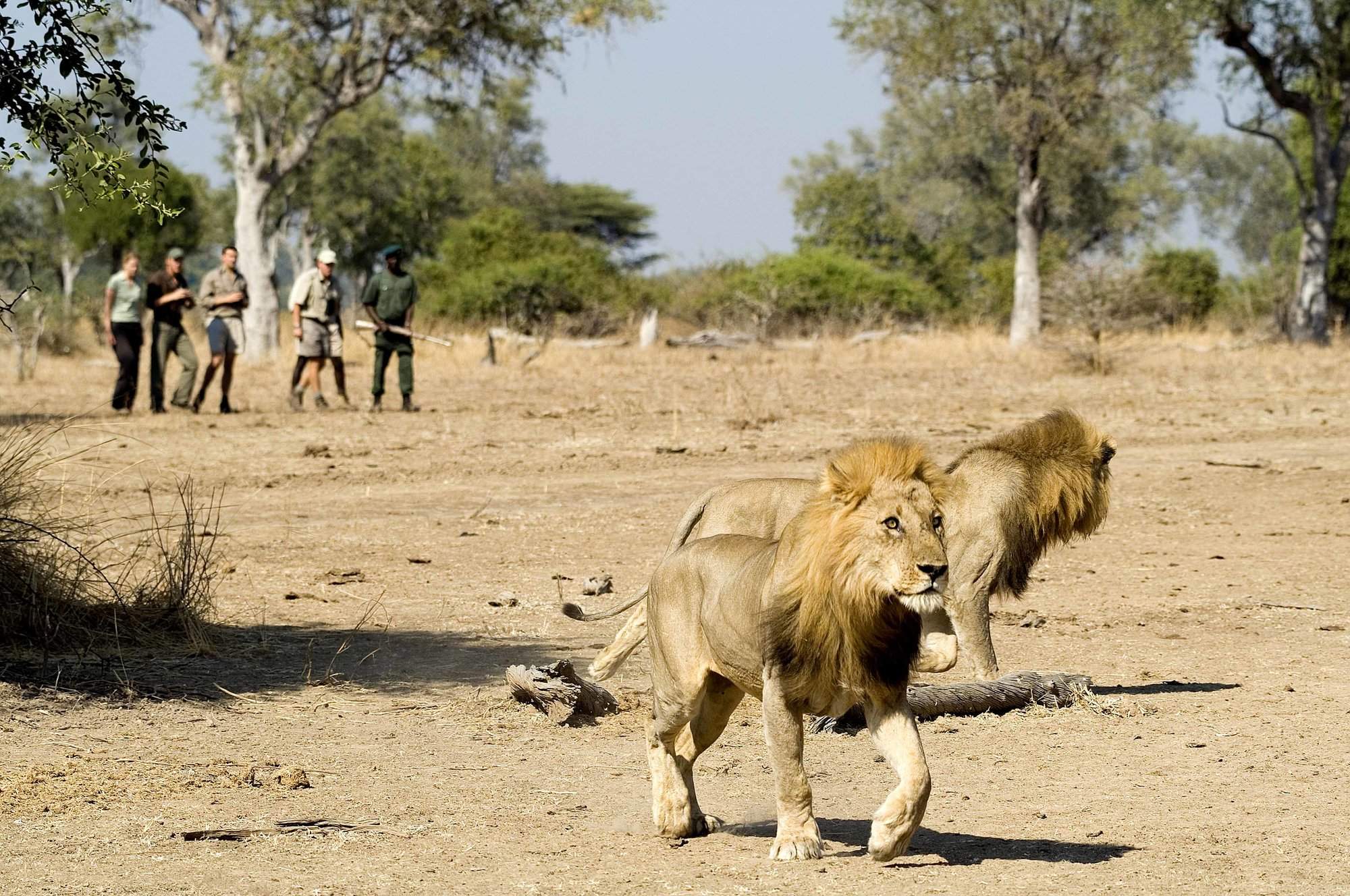
Robin Pope mobile
RPS mobile safari camps are at the heart of their set-itinerary walking safaris in South Luangwa National Park, which start and finish at a permanent camp.
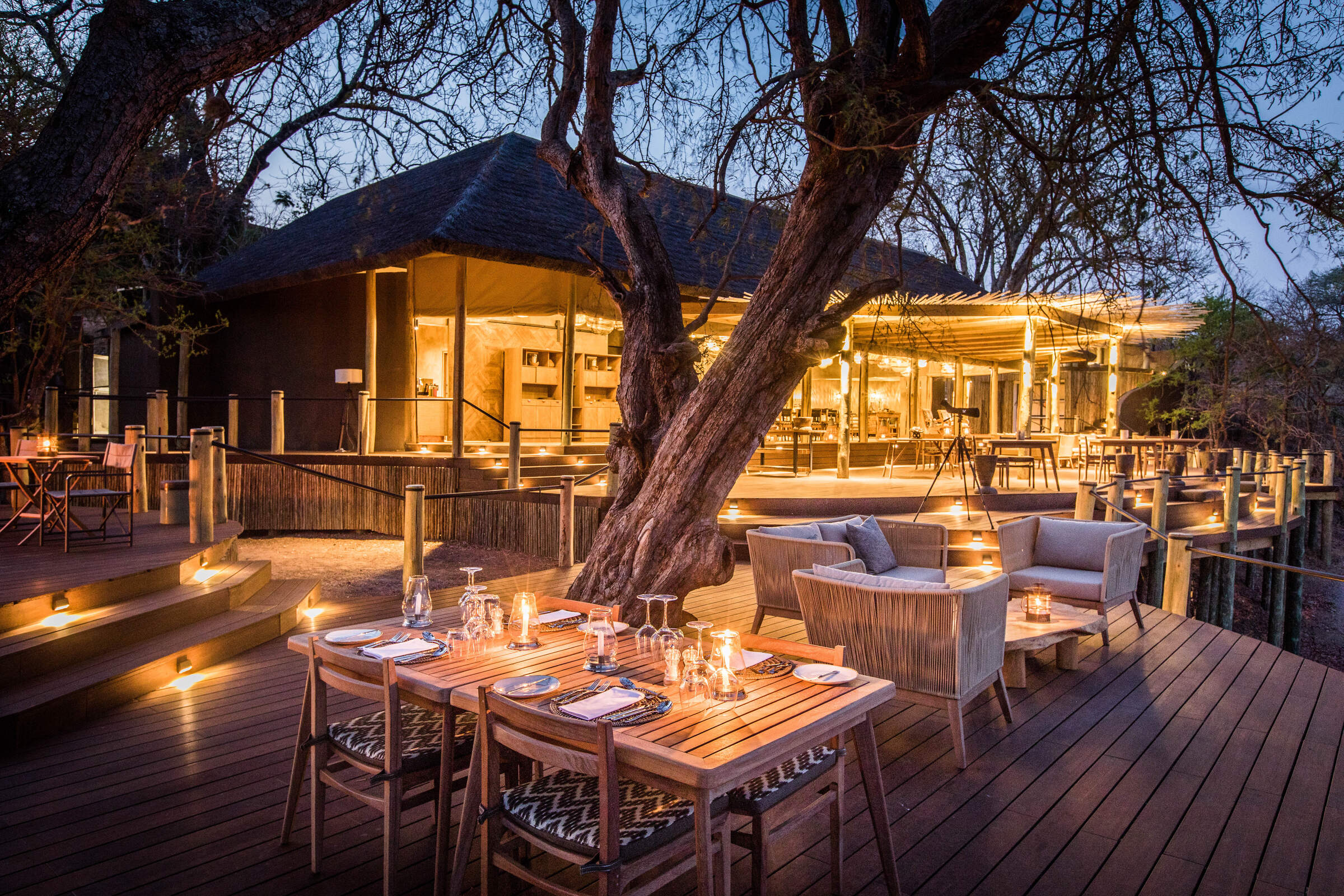
Puku Ridge
Puku Ridge is a luxurious designer camp set in a stunning location, high on a hill overlooking a floodplain within South Luangwa. Explore from here on 4WD safaris and walks.
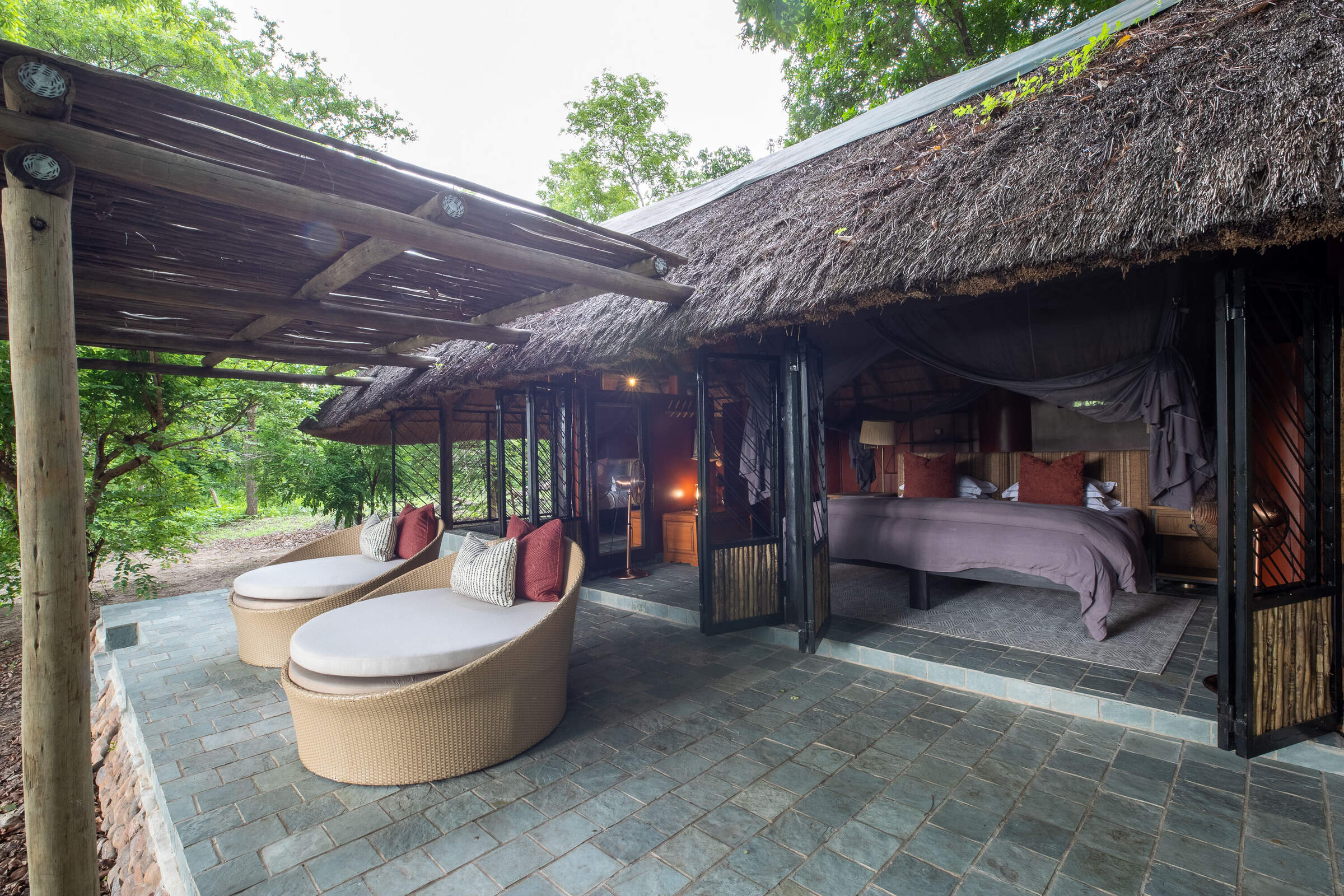
Kapamba Bushcamp
In the remote far south of South Luangwa National Park, Kapamba is a small and very comfortable bushcamp offering good walks and game drives.
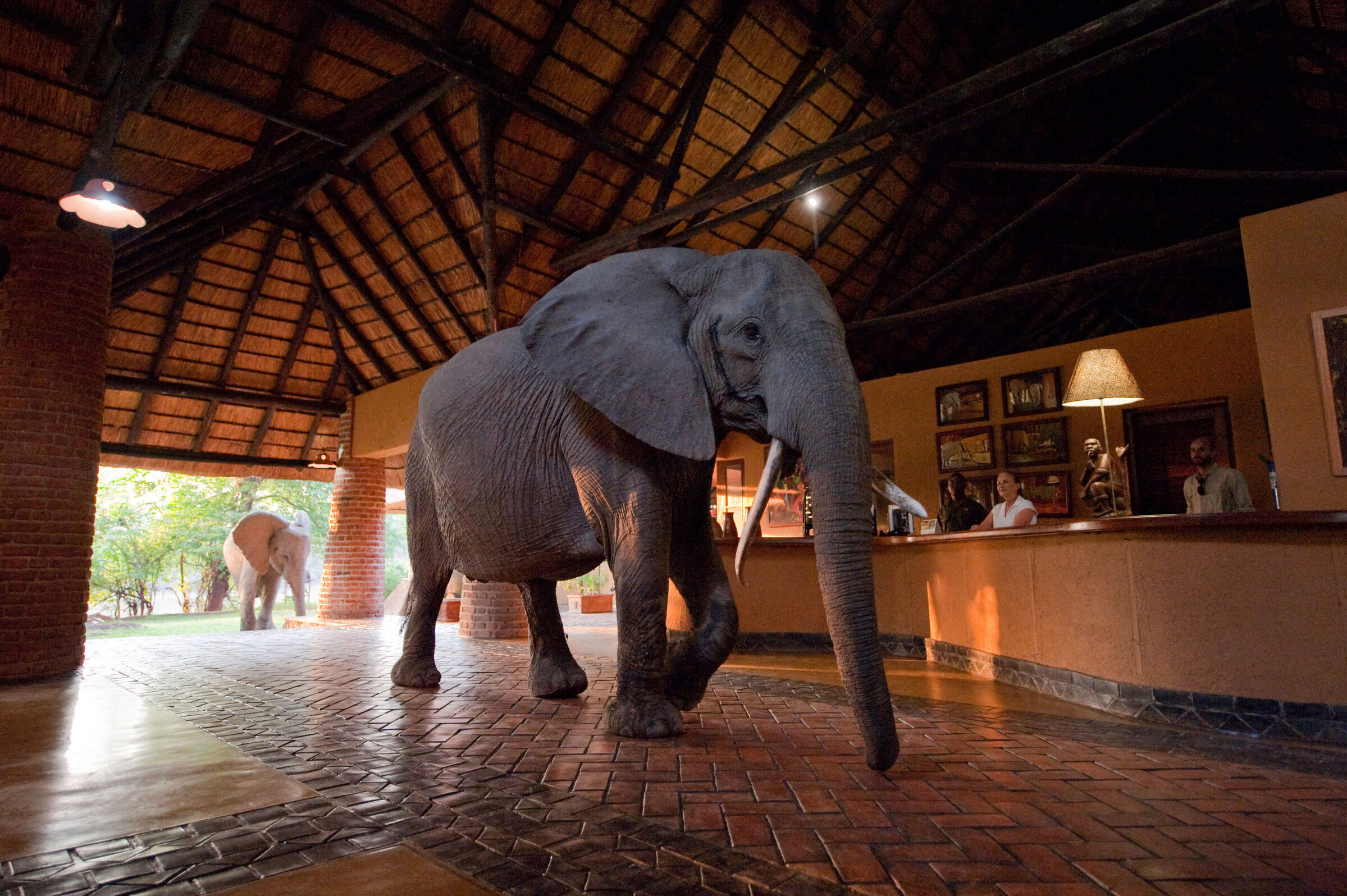
Mfuwe Lodge
In a game-rich area close to the South Luangwa’s main Mfuwe Gate, Mfuwe Lodge is relatively large by park standards, but it’s stylish, modern and family friendly.
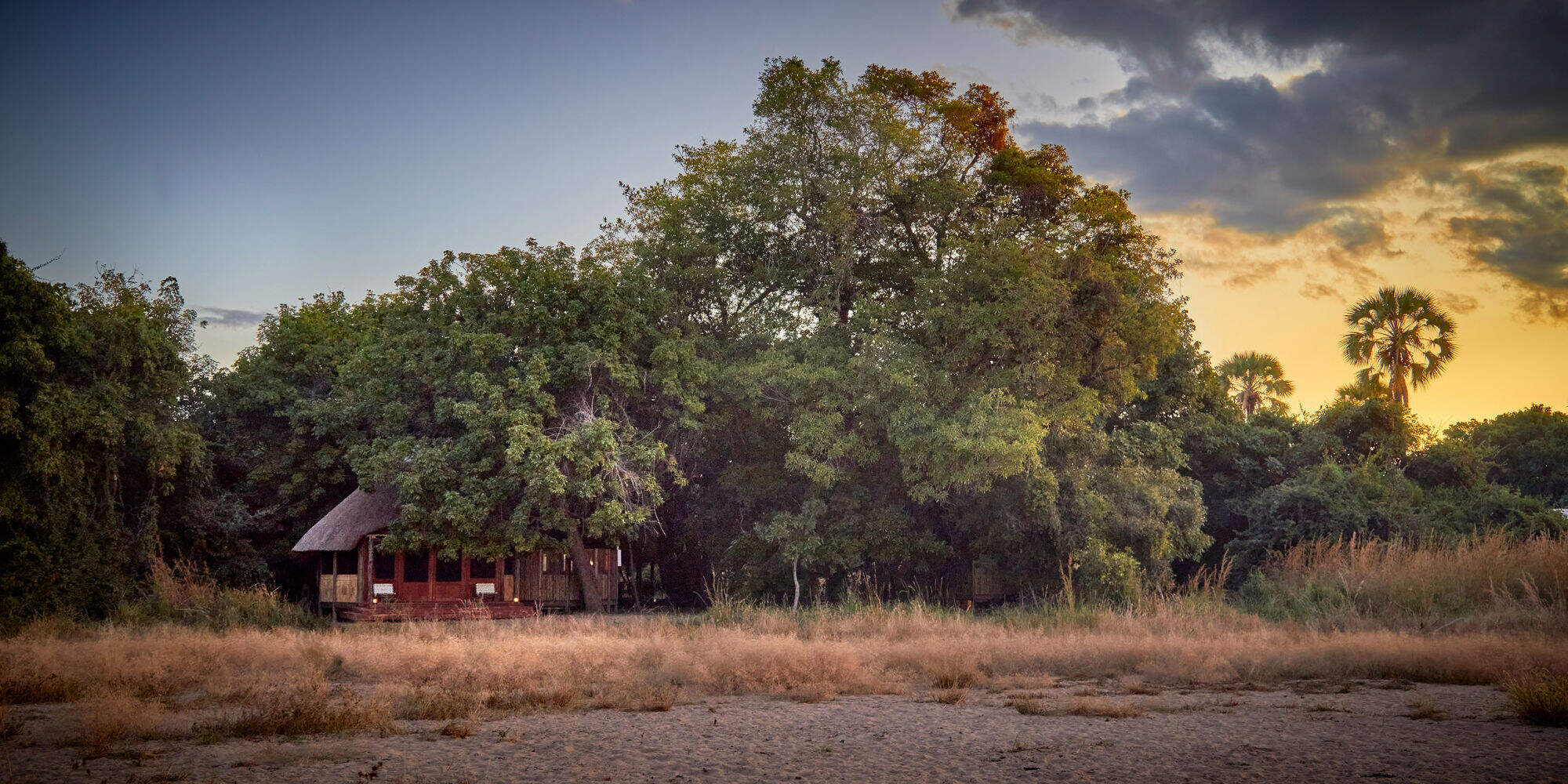
Kuyenda Bushcamp
Kuyenda Bushcamp is a classic bushcamp with particularly delightful hosts and offers top-class walking safaris in South Luangwa National Park.
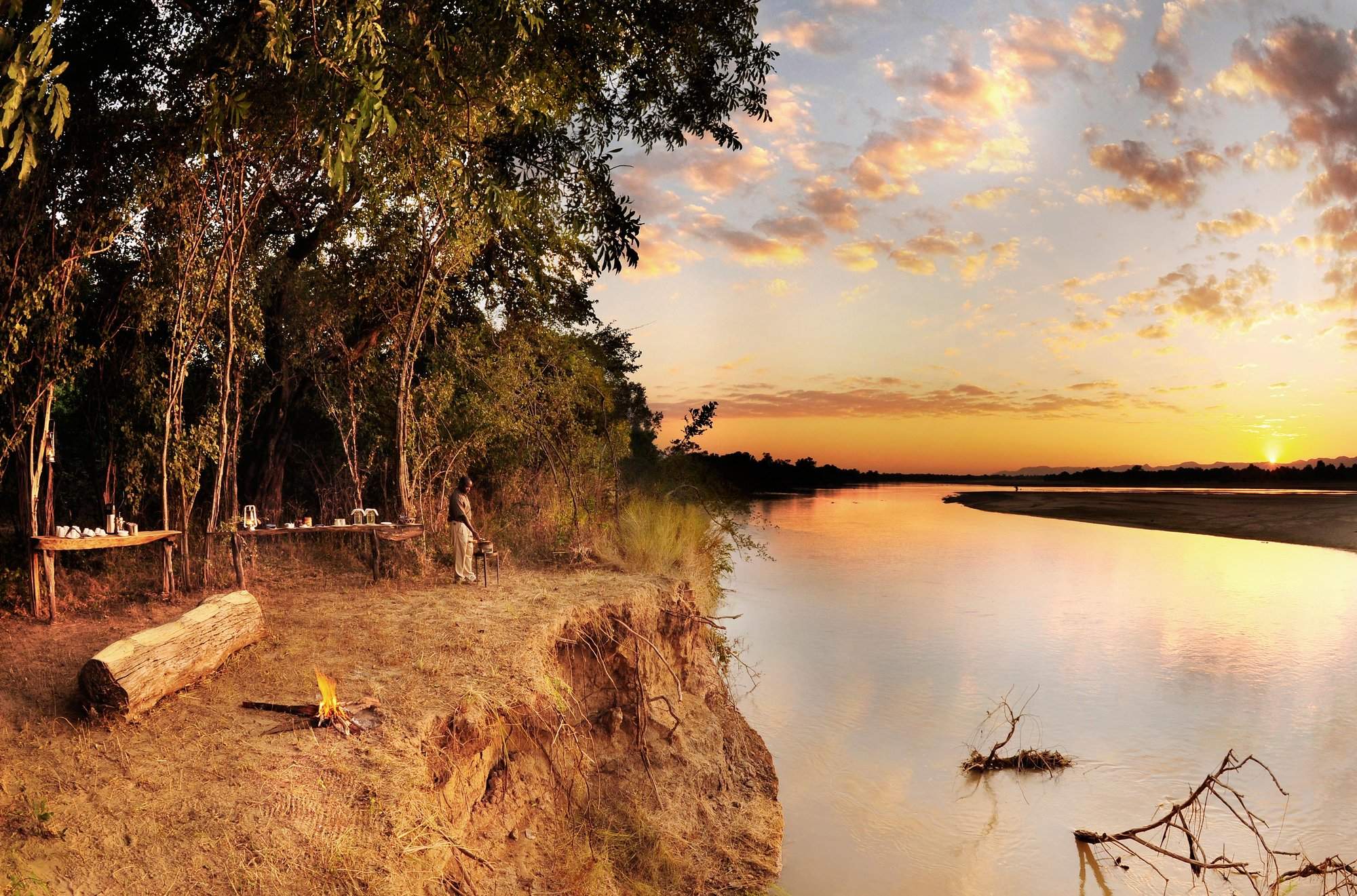
Bilimungwe Bushcamp
A smart bushcamp with four very spacious chalets, Bilimungwe offers interesting walking safaris in pretty riverine woodland, as well as day and night safari drives.
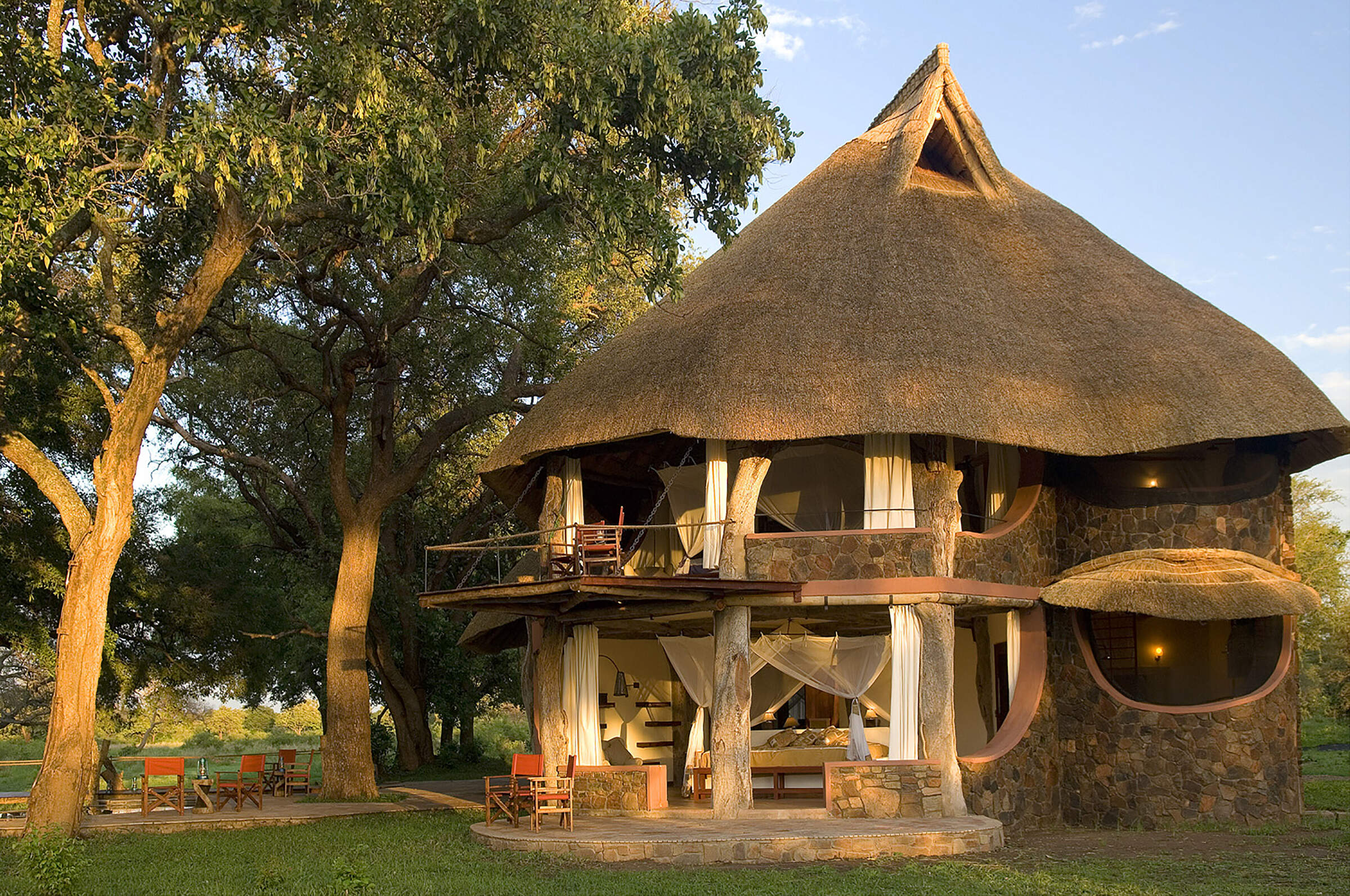
Luangwa Safari House
Luangwa Safari House is a vast and very smart four-bedroom house specifically designed for families and small groups, and offering an exclusive and flexible safari experience.
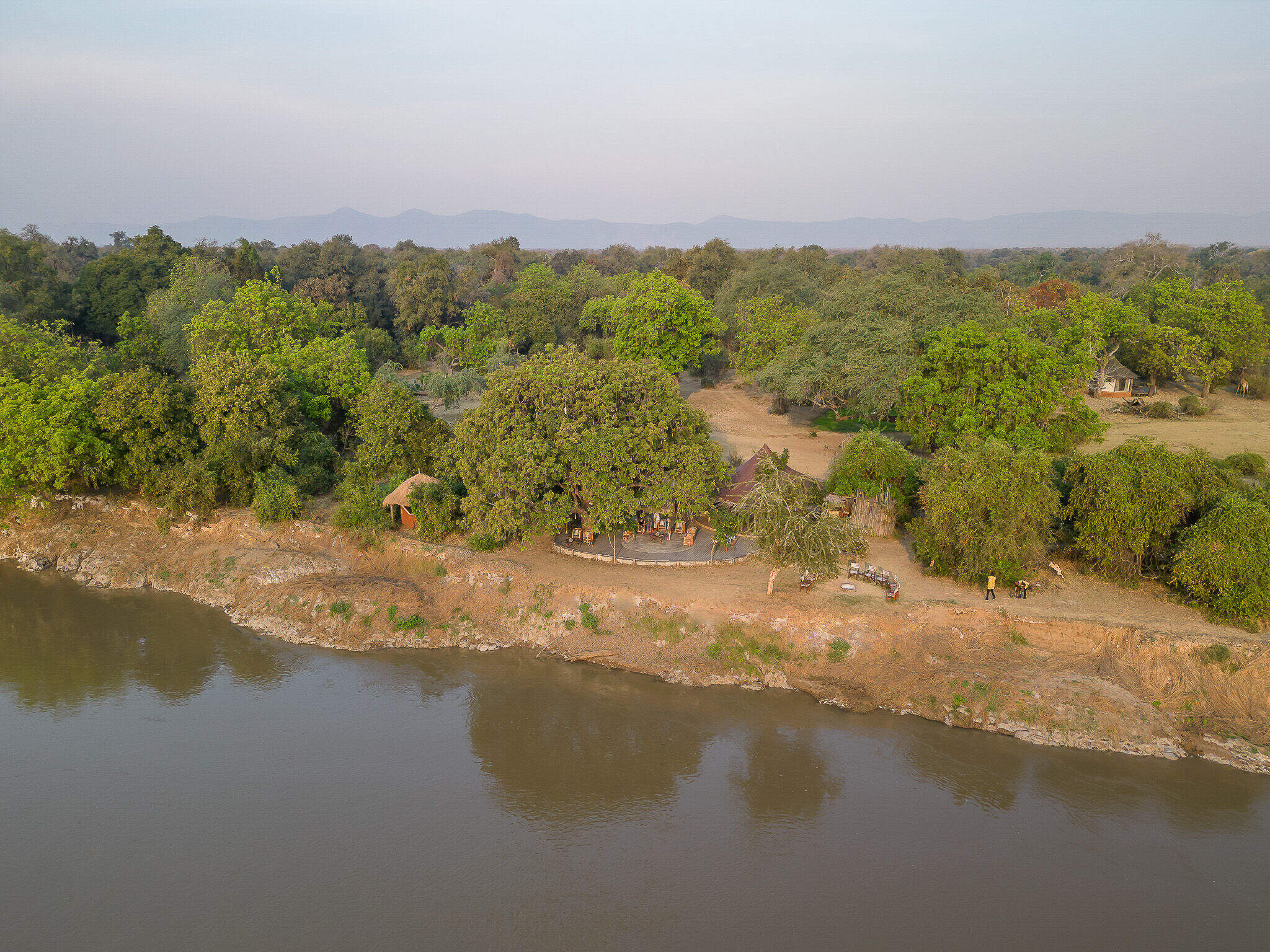
Three Rivers Camp
In the remote far south of South Luangwa National Park, Three Rivers Lodge sits at the confluence of three of the valleys rivers.
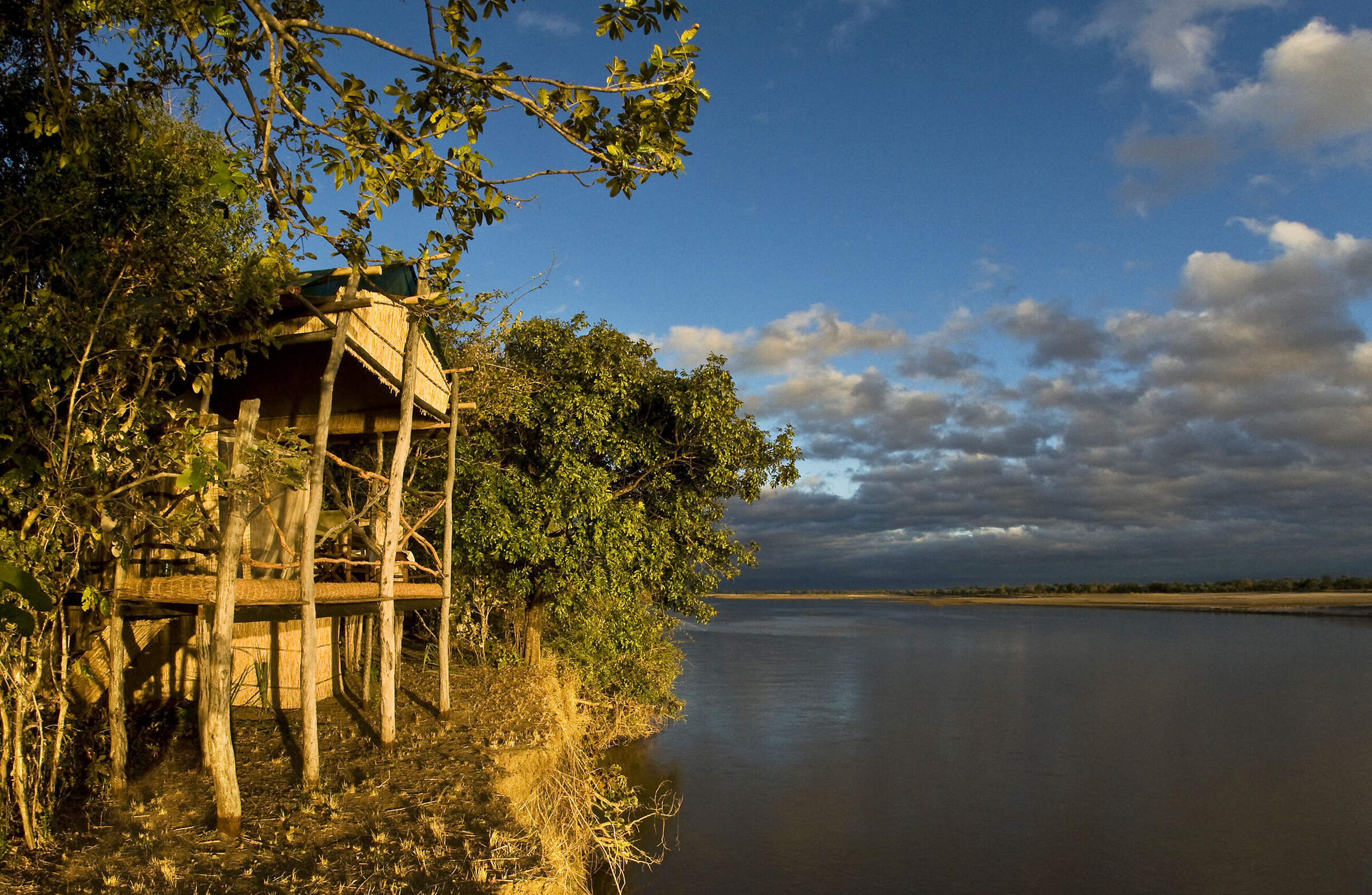
Island Bush Camp
Island Bushcamp is a good-value, rustic, walking-only camp, in arguably one of the most remote parts of the South Luangwa, well away from all other camps.
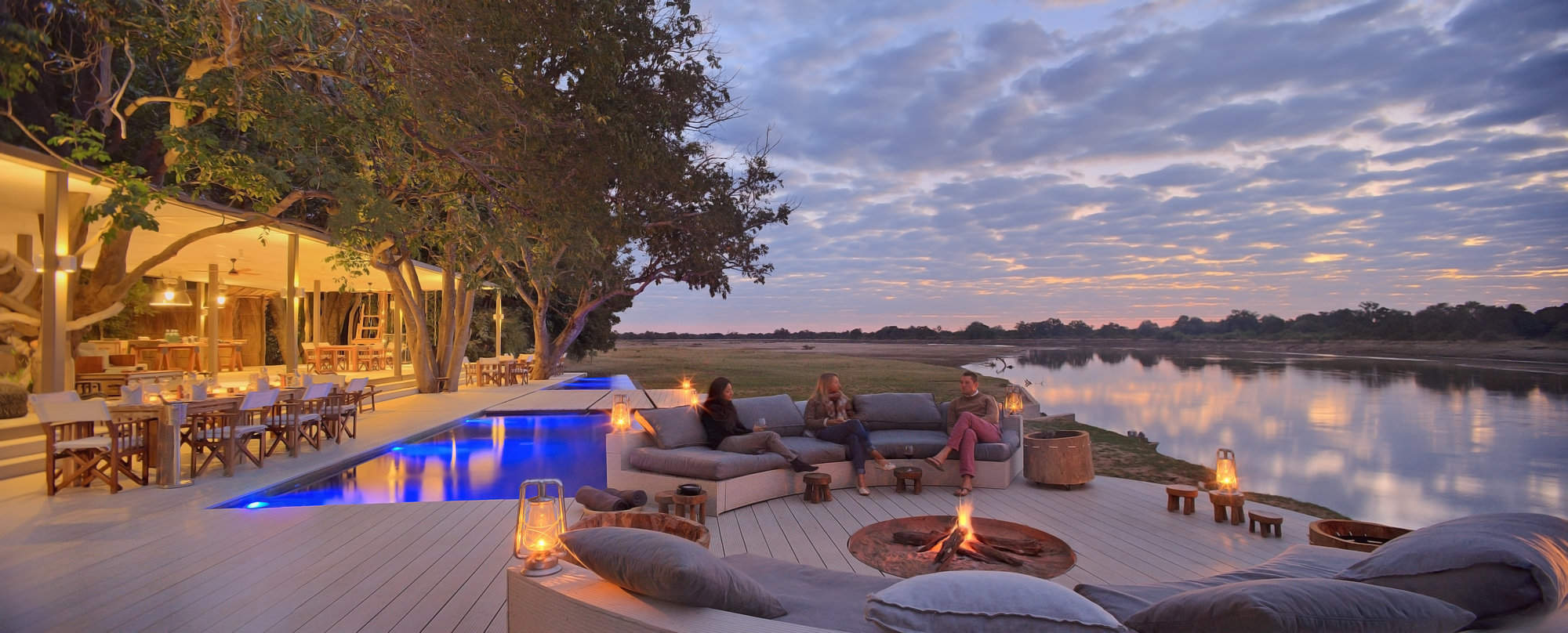
Chinzombo
Opened in early June 2013, Chinzombo offers luxurious and stylish accommodation with very high levels of service and excellent guiding.
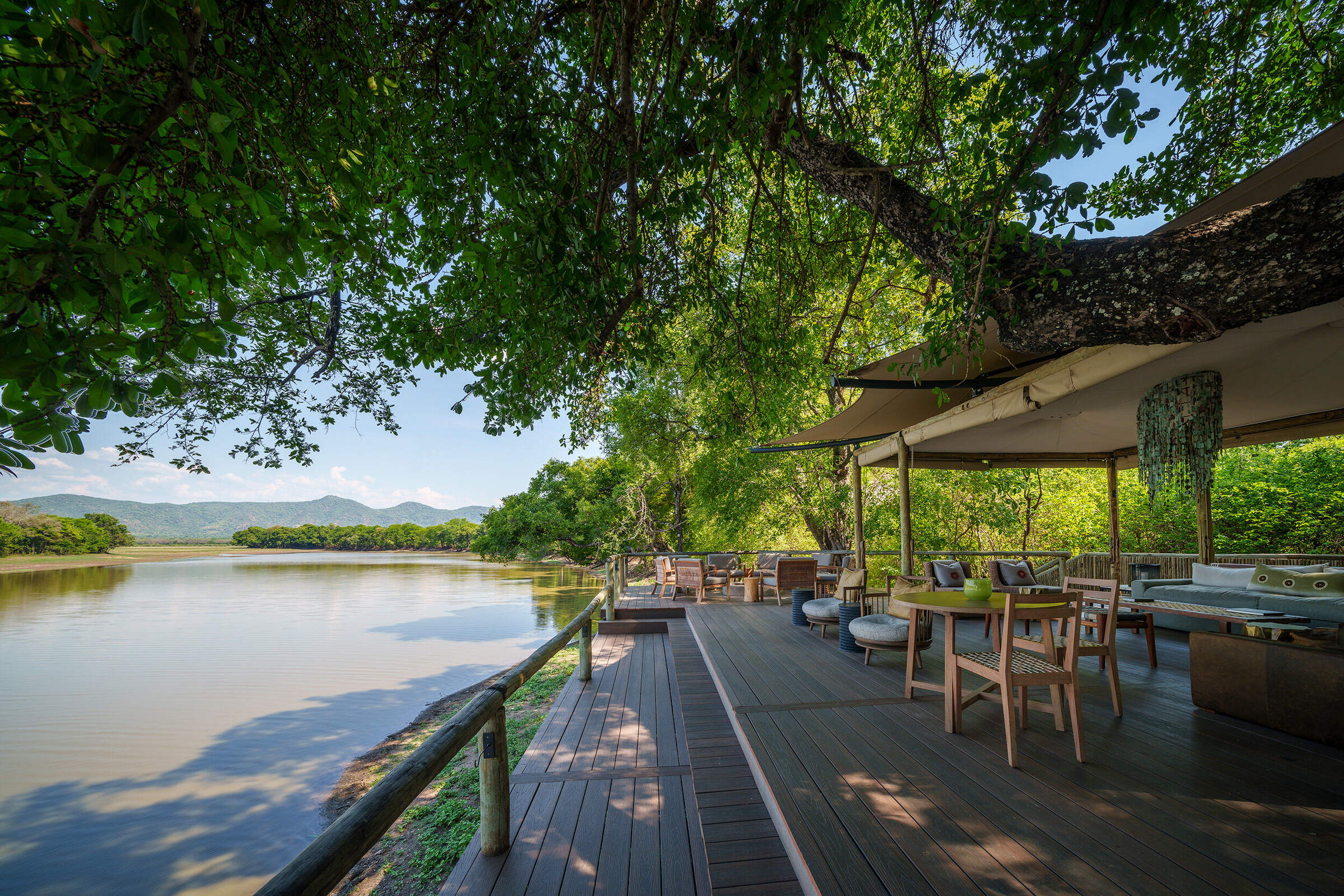
Chindeni
Chindeni Bushcamp is a very modern and minimalist camp, which is a far cry from your traditional bushcamp and unlike most of the other camps in South Luangwa.
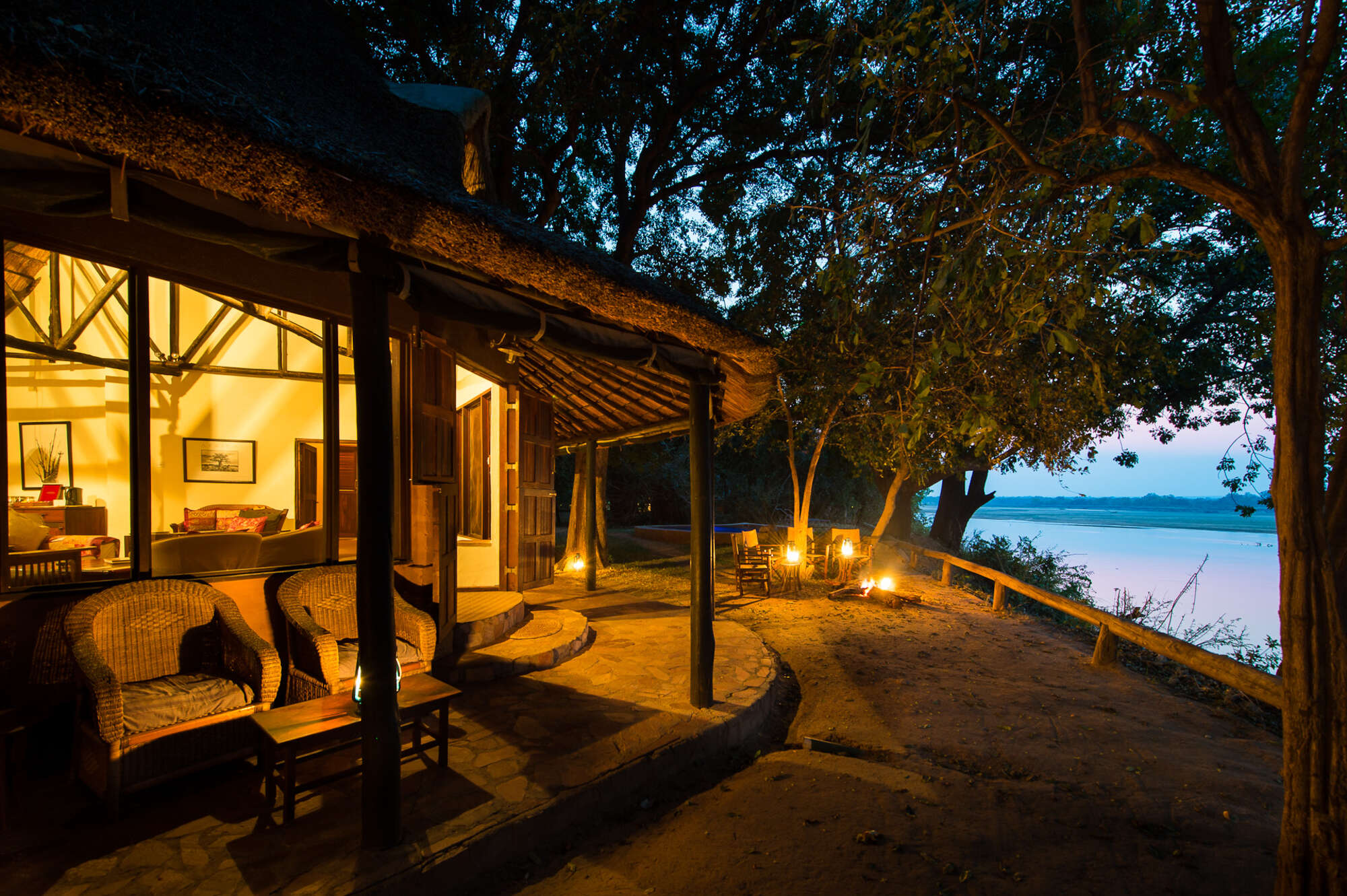
Robin's House
With your own expert guide, private vehicle, chef and valet, the two-bedroom Robin's House offers an exclusive, flexible safari experience – and is open year round.
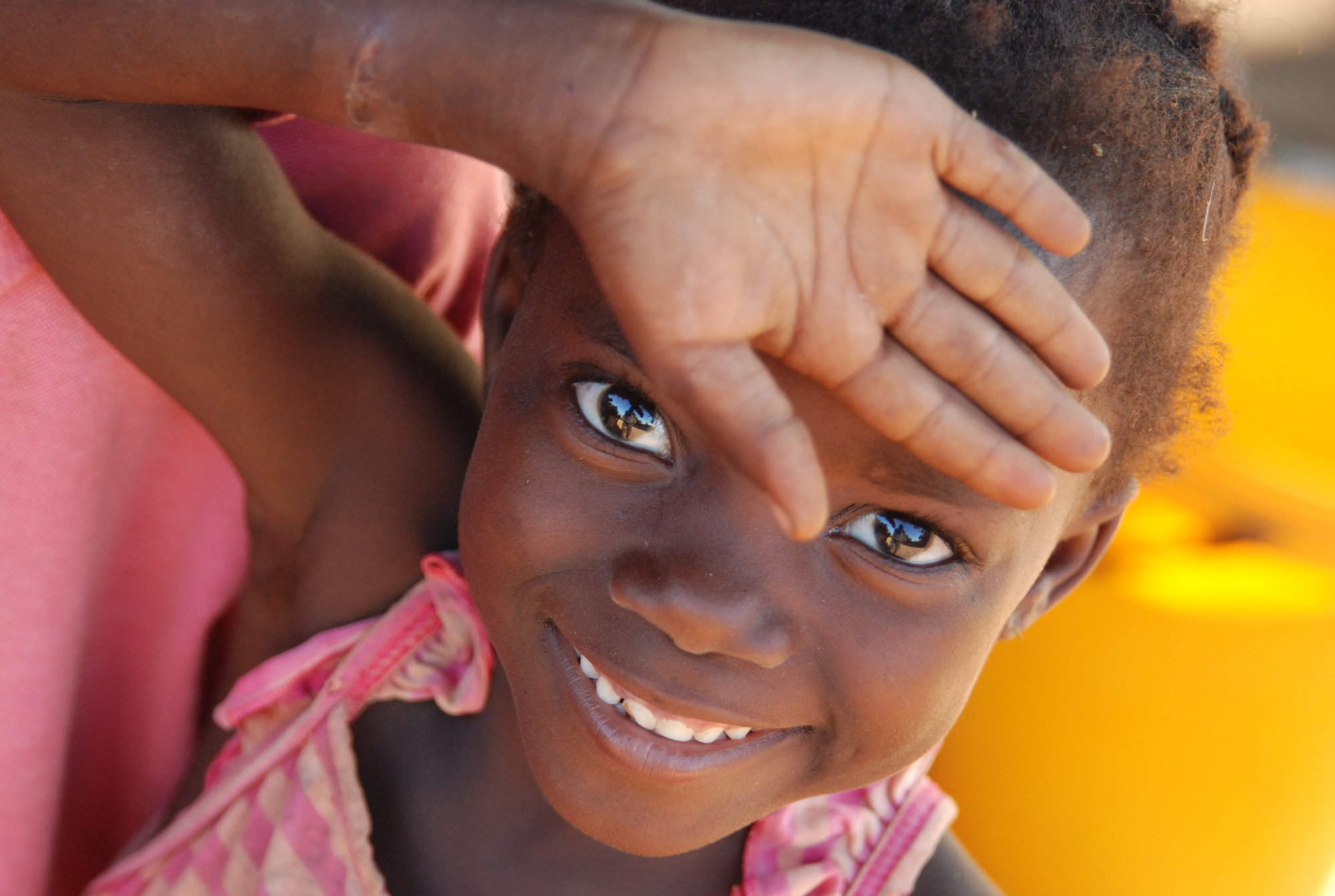
Kawaza Village
Kawaza Village – beside the South Luangwa National Park, offers guests the rare opportunity to appreciate local village life. Visit for a few hours or stay overnight.
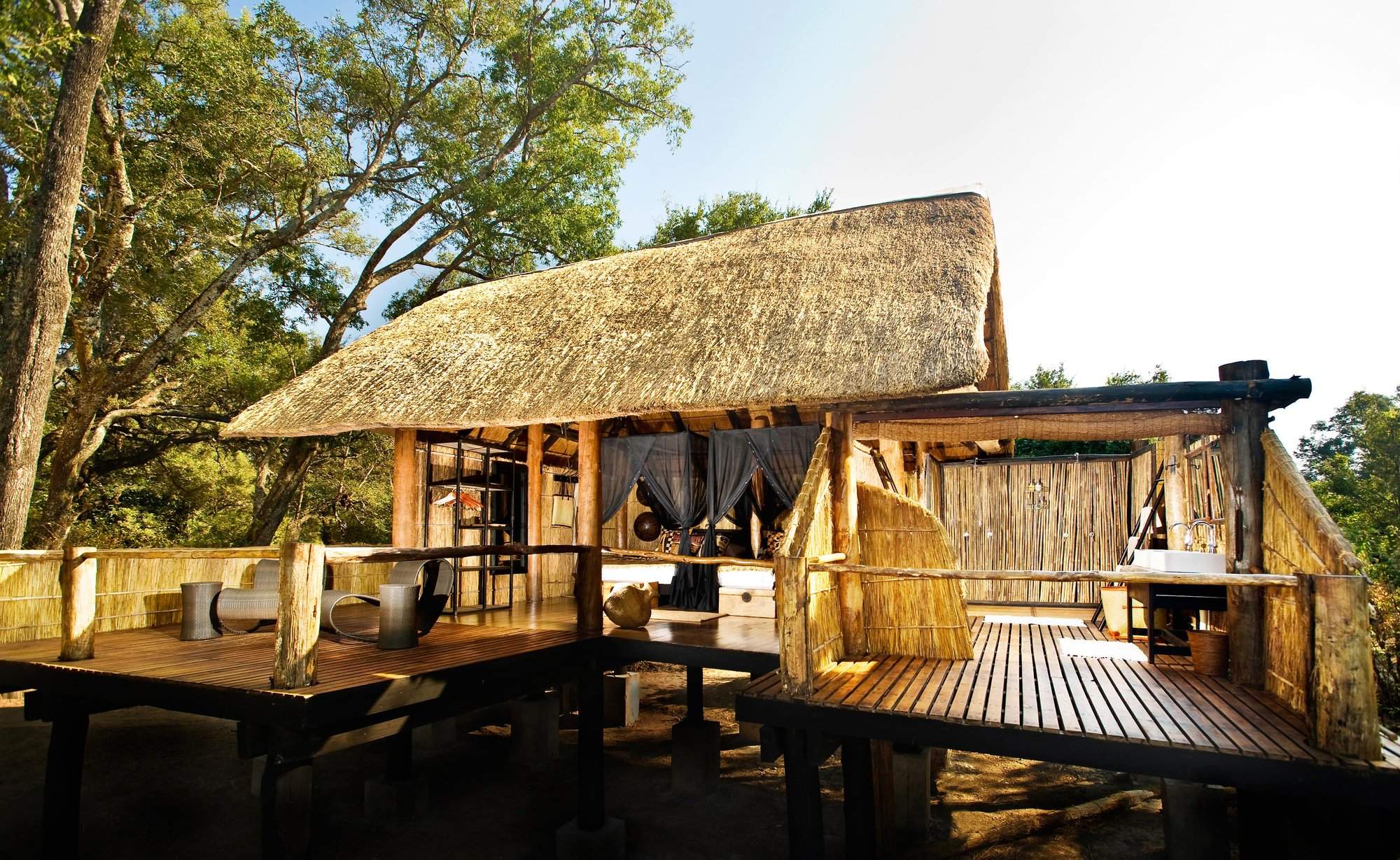
Chamilandu Bushcamp
A comfortable little bushcamp, Chamilandu has a picturesque setting by the Luangwa River, in an area with a range of habitats to explore on foot and by 4WD.
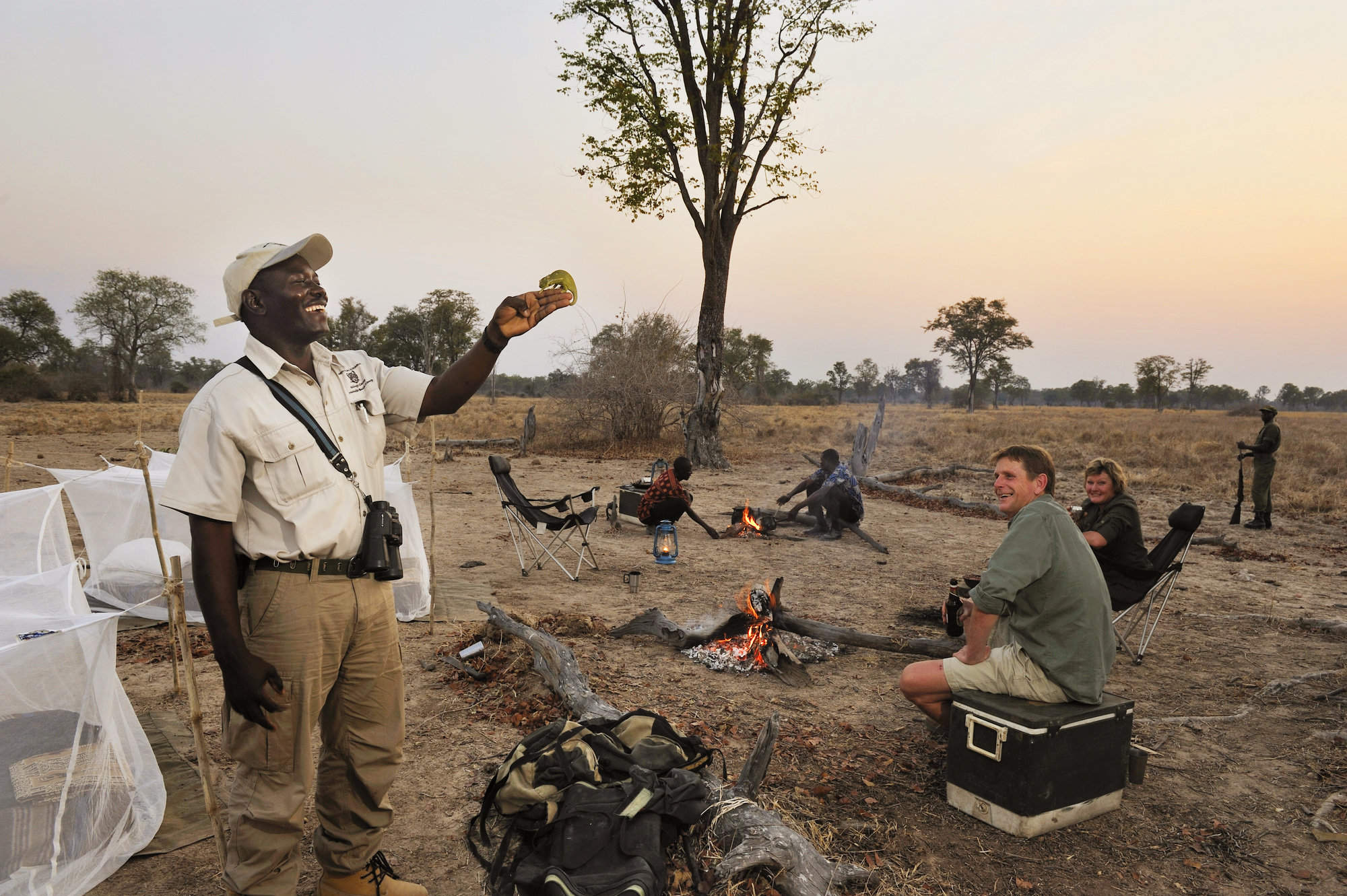
Mwamba Camp-out
The Mwamba-Camp Out allows you to have an incredibly adventurous night in the bush, sleeping under mosquito nets with activities led by some of the best guides in Zambia.
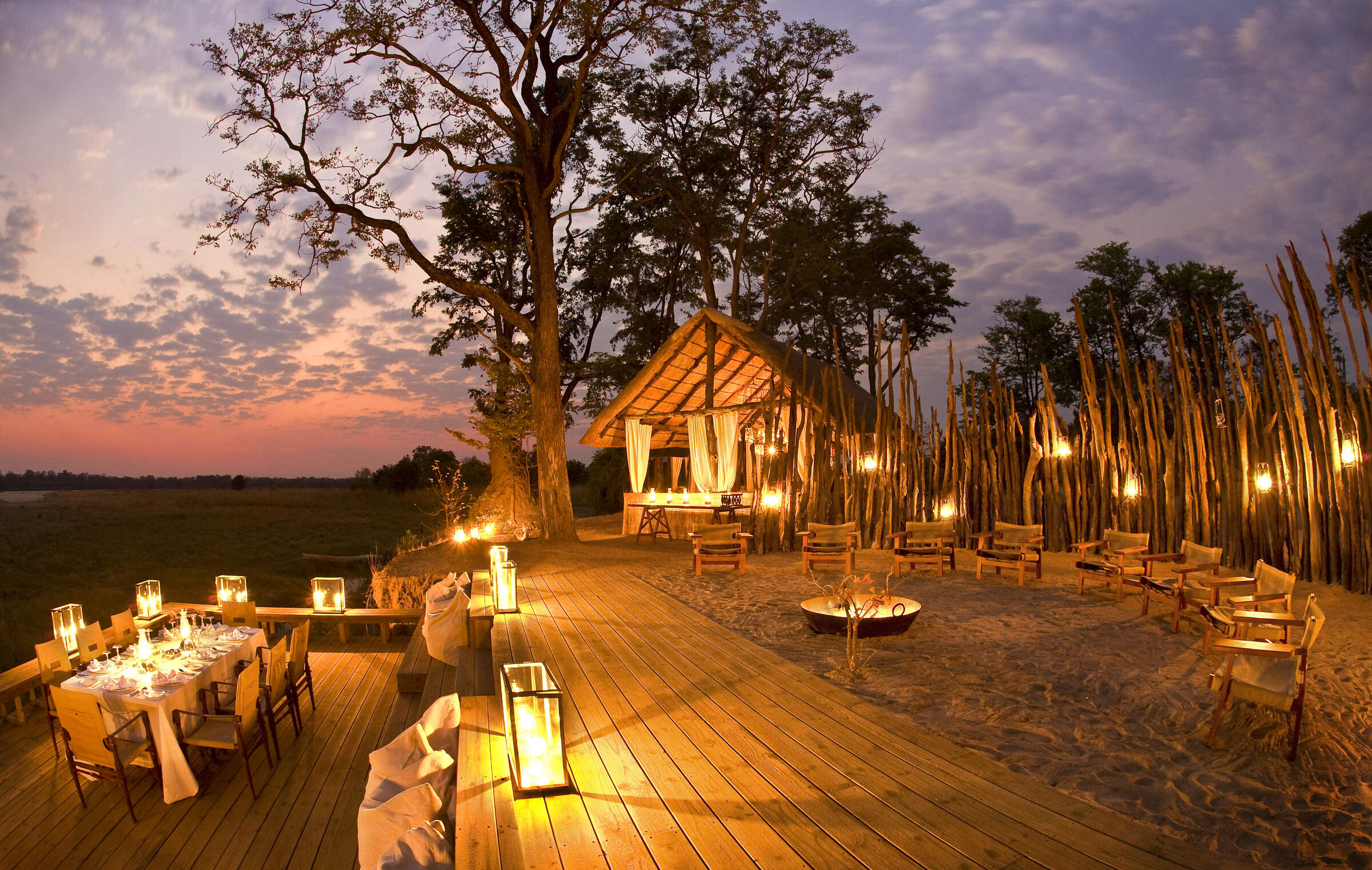
Zungulila
Zungulila is a small, comfortable tented bushcamp with an emphasis on walking safaris, in the remote southern section of the South Luangwa.
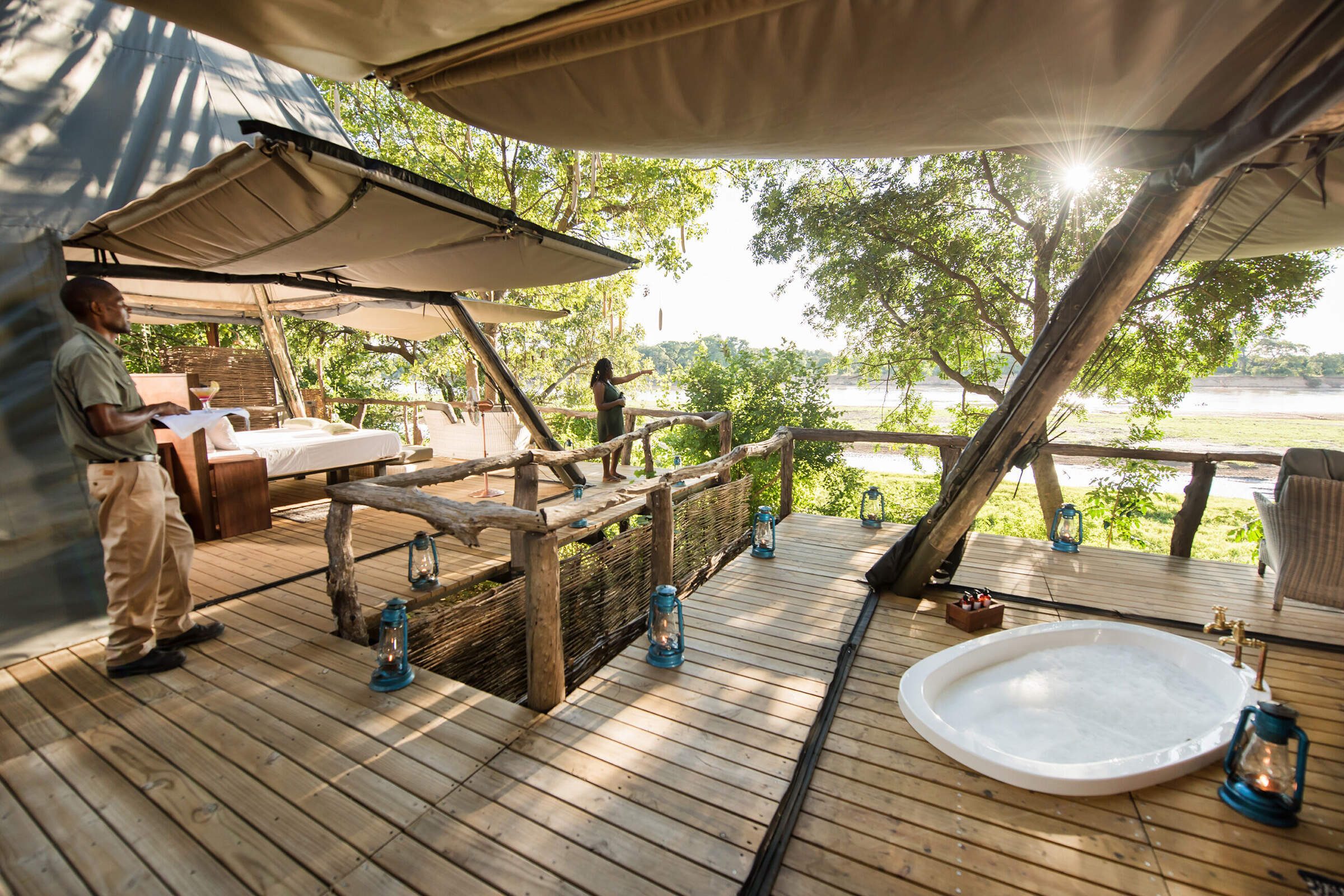
Shawa Luangwa
Opened in June 2021, Shawa Luangwa Camp is a small, intimate and rustic camp, with a good location in a remote section of the South Luangwa National Park.
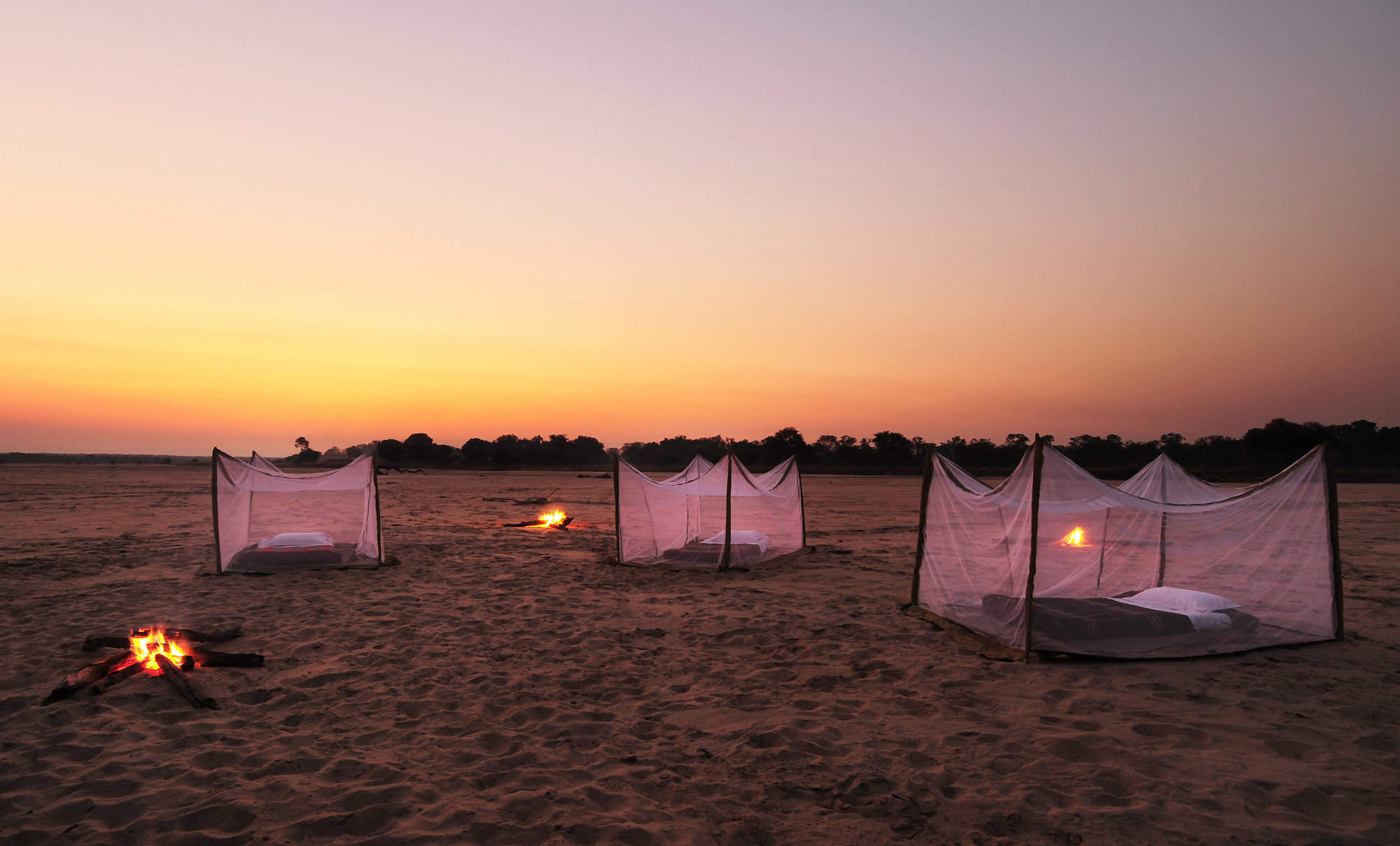
Luwi Riverbed Sleepout
For an adventurous night in South Luangwa National Park, come and sleep out in the bush, around a campfire, with an experienced guide and game scout.
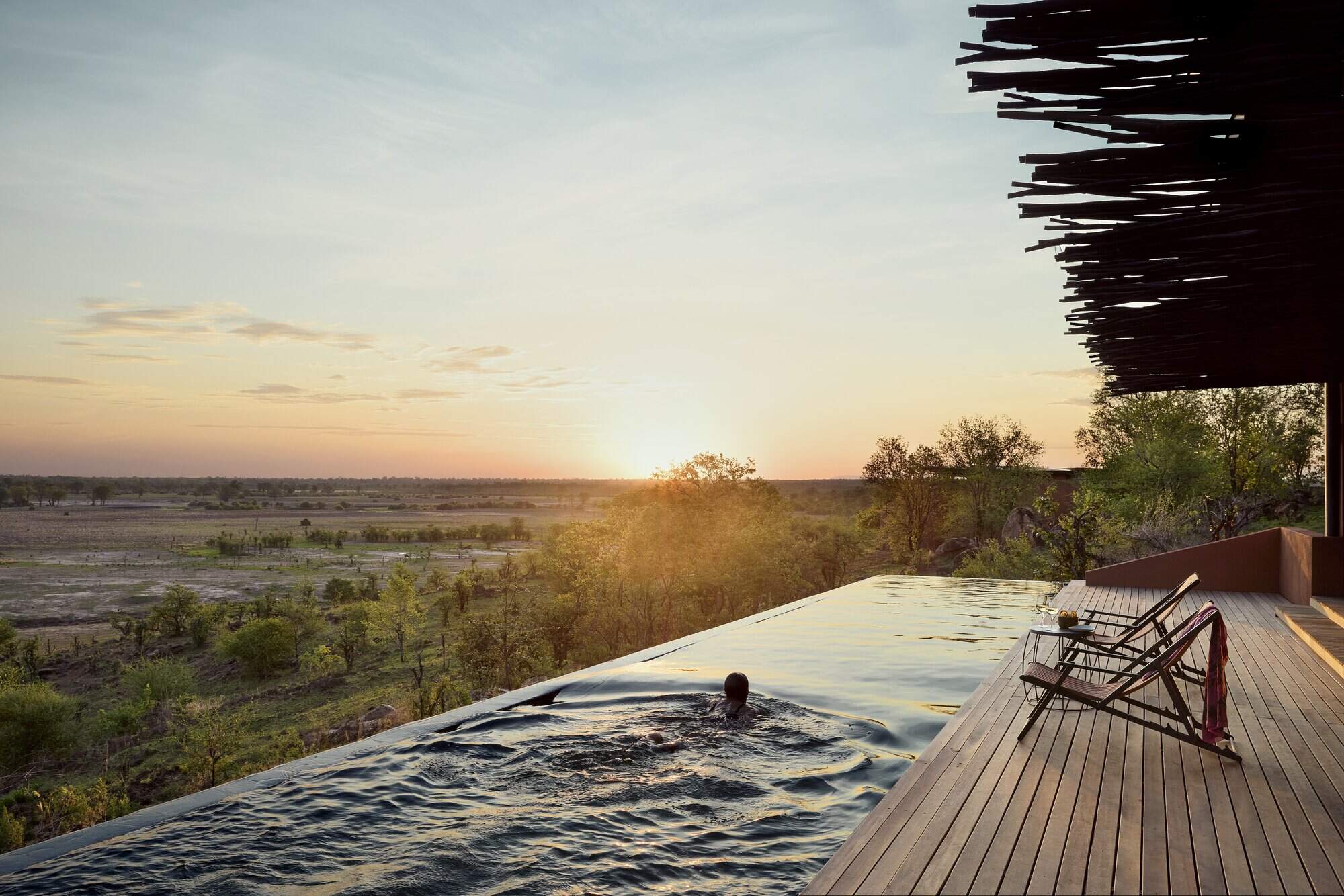
Chichele Lodge
Currently in the final stages of an extensive rebuild, Chichele Presidential Lodge stands high within the park, with superb views, and is due to reopen in early 2025.
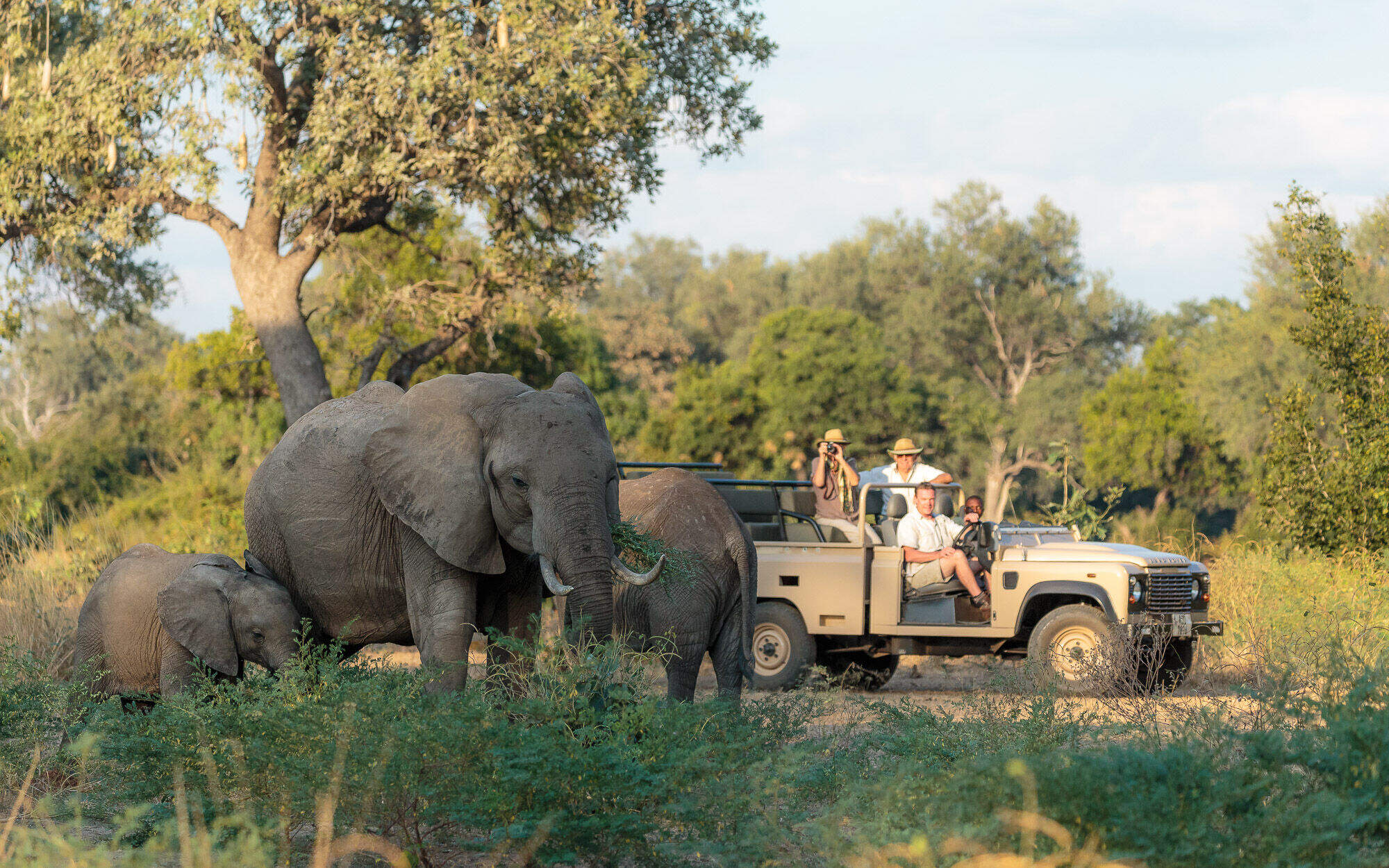
Nkonzi Camp
A simple and rustic bush camp, Nkonzi has a strong focus on walking safaris in this remote section of Zambia’s South Luangwa National Park.
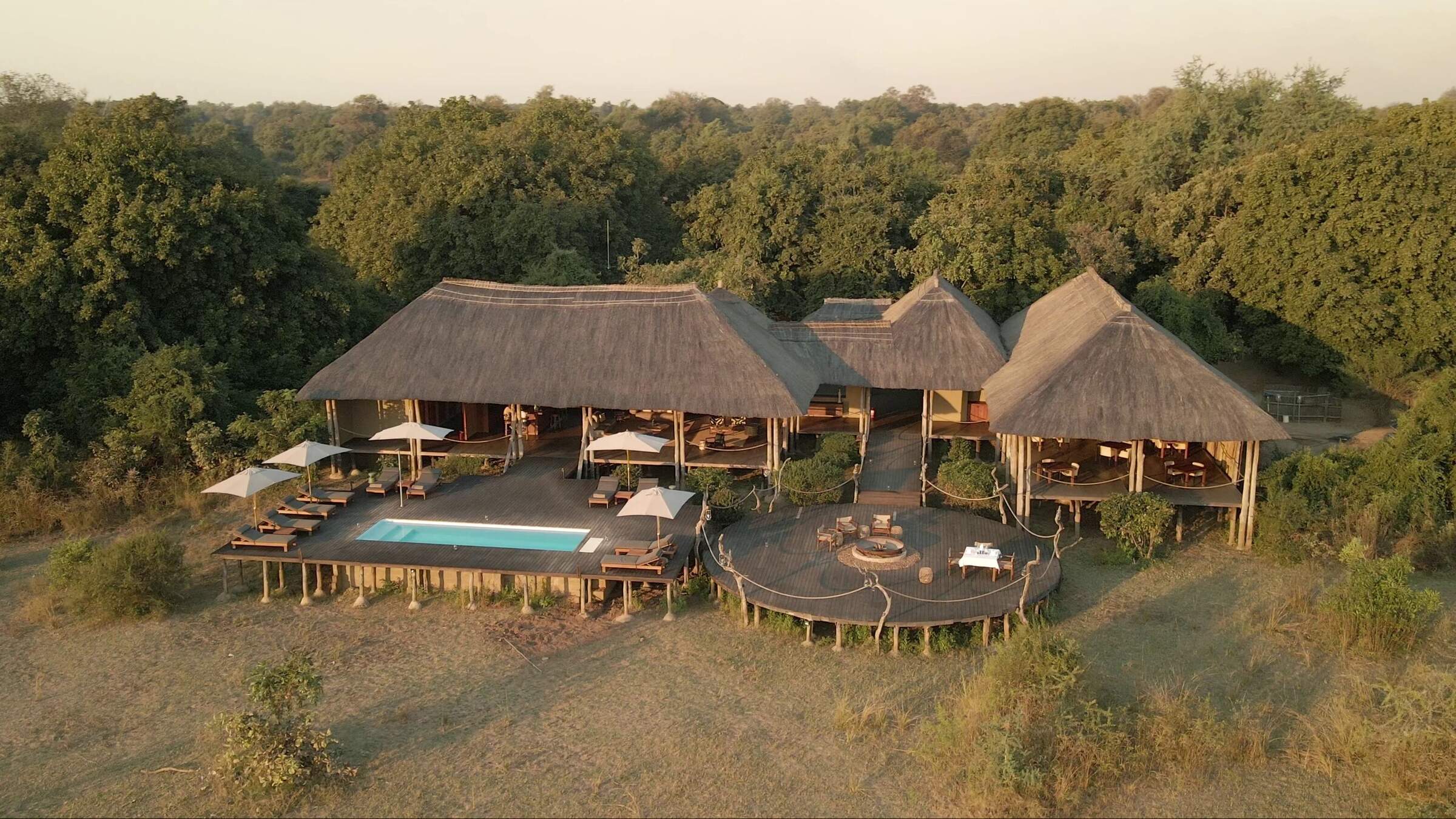
Chikunto
Chikunto Safari Lodge is a more traditional property in the South Luangwa National Park, sitting on a peninsula of land created by the meandering Luangwa River.
When to go to South Luangwa National Park
Our month by month guide: What it's like to visit Kaingo Camp in South Luangwa National Park
Jan
Feb
Mar
Apr
May
Jun
Jul
Aug
Sep
Oct
Nov
Dec
South Luangwa National Park in January
January marks the height of the wet season in South Luangwa. Expect frequent downpours, often lasting a few hours, with intermittent sunny periods. The mercury regularly climbs above 30°C, accompanied by high humidity. The park's landscape is verdant and lush, with crystal-clear air.
However, the abundance of water causes most larger animals to disperse, and the thick vegetation can hinder game viewing. Walking safaris are largely impractical during this time. Migratory birds, many in breeding plumage, boost the area's avian diversity. Most lodges close and the few that remain open offer their lowest rates. Only the central network of all-weather roads is reliably passable for 4WD safaris. Low numbers of visitors ensuring a tranquil park experience for those who do visit.
- Wet season peak, frequent showers
- Most lodges and all bush-camps are closed
- Lush vegetation, ideal for photography
- Large wildlife is scattered, can be challenging to spot
- Few tourists, budget-friendly rates
Our view
This is not a great time to visit
Weather in January
South Luangwa National Park in February
February continues the ‘green season’ trend in South Luangwa National Park, with impressive thunderstorms delivering short bursts of rain most days, punctuated by clear skies. The park remains awash with water, affecting wildlife distribution and lodge operations.
Dense vegetation limits game viewing opportunities on safari and walking safaris aren’t usually possible. However, the swollen Luangwa River allows for unique boating experiences unavailable during drier months. Despite challenging conditions, patient visitors may be rewarded with sightings of animals caring for their young. The handful of operational lodges maintain low rates, and the park sees few visitors during this period.
- Continued wet season, regular downpours
- All bush-camps and most lodges are closed
- Verdant scenery, photogenic landscapes
- Game viewing challenging due to thick foliage
- Low visitor numbers, economical pricing
Our view
This is not a great time to visit
Weather in February
South Luangwa National Park in March
March signals the tail end of South Luangwa's rainy season, with heavy showers still frequent. Water levels peak, so driving off the park’s all-weather road network remains challenging. Daytime temperatures consistently exceed 30°C, with rain-induced humidity remaining high.
Most lodges are still closed, and thick vegetation continues to impact game viewing and walking safaris. However, this period can offer exceptional sightings of animals with their offspring, and predator activity often increases. Wild dogs have historically been particularly active in the park during this time. The combination of clear air and increasingly blue skies provides excellent photographic opportunities. Birdwatching remains superb as migratory species prepare for their winter journey.
- Wet season persists, intermittent rain
- Many lodges remain closed
- Abundant greenery, picturesque settings
- Young animals plentiful, but hard to see
- Minimal crowds, cost-effective travel
Our view
This is not a great time to visit
Weather in March
South Luangwa National Park in April
April represents a transitional period in South Luangwa National Park as the rains shift from intense downpours to lighter, less frequent showers. The park's scenery remains incredibly green and vibrant, though larger wildlife can be harder to spot on safaris.
Some lodges begin to reopen while seasonal bushcamps remain closed as they prepare for the upcoming dry season. The Luangwa River reaches often its highest level in April, creating a spectacular sight. Despite the challenges, this period can offer unique experiences for those willing to brave the unpredictable conditions – and accept a greatly reduced choice of places to stay.
- Wet season waning, occasional showers
- Some lodges begin reopening
- Landscape still lush, great for photographers
- Wildlife viewing slowly improving
- Few visitors, attractive off-season rates
Our view
This is not a great time to visit
Weather in April
South Luangwa National Park in May
May is a lovely month; it typically heralds the start of the dry season in South Luangwa. While occasional showers may occur, most days are clear and sunny. As winter approaches, temperatures begin to drop, with daytime highs around 26°C.
The drying landscape improves access within the park, and most lodges reopen. Some standing water remains, but game viewing noticeably improves as the vegetation thins out. The clear air continues to benefit photographers. Late May is very popular among the Luangwa’s ‘safari regulars’ who seek to capitalise on good weather, improved wildlife sightings, newly-opened camps (including some seasonal bush-camps) and the final weeks of low-season rates at many lodges.
- Dry season onset, clearer skies
- Most lodges and some bush-camps operational
- Vegetation still green, crisp air
- Game viewing conditions improving
- Last month for lower accommodation prices
Our view
A good time to visit, with pros & cons
Weather in May
South Luangwa National Park in June
June in South Luangwa National Park is characterised by virtually rainless days and abundant sunshine. Humidity levels plummet, and winter's approach brings cooler temperatures, with nighttime lows around 10°C and daytime highs of 25°C.
The landscape remains lush, but the thinning vegetation significantly enhances visibility for game viewing, the conditions are ideal for walking safaris. All the lodges and bushcamps in the park are operational by early June. While some offer shoulder season rates, others are already running with high-season pricing. Wildlife begins to concentrate around water sources, setting the stage for excellent game viewing in the coming months.
- Consistently sunny, cooler nights
- All South Luangwa lodges open
- Wildlife sightings becoming more frequent
- Ideal conditions for walking safaris
- Viewing of the Victoria Falls at its best
Our view
A very good time to visit
Weather in June
South Luangwa National Park in July
As the dry season progresses in South Luangwa, July sees vegetation and grasses dying back, with water becoming increasingly scarce. Wildlife congregates around remaining water sources, most notably along the Luangwa River, leading to excellent game viewing opportunities.
July marks the heart of winter, with daytime temperatures in the 20s Celsius, whilst nighttime lows can drop to single digits. Early morning and late evening game drives can be particularly chilly, with lodges often providing blankets and hot water bottles. Bring your hats, coats and gloves! Visitor numbers rise significantly, and space at popular small camps can become limited. Nearly all properties now charge their highest rates.
- Warm days, chilly evenings
- Game viewing notably improved
- Excellent visibility for walking safaris
- High season prices for most camps and lodges
- Comfortable daytime temperatures
Our view
A very good time to visit
Weather in July
South Luangwa National Park in August
August in the national park offers some of the year's best game viewing opportunities. South Luangwa’s vegetation has largely died back, and wildlife clusters around remaining water sources.
Rain is extremely unlikely, with sunny days largely guaranteed, though a haze may sometimes appear on the horizon due to dust and smoke in the air. Nighttime temperatures can dip below 5°C, but daytime highs reach the 20s Celsius. Warm clothing is essential for morning and evening drives. This is one of the most popular months to visit the park for a safari, with lodges and camps charging peak rates and often booking up far in advance.
- Very dry warm days and cold nights
- Prime wildlife viewing near water sources
- Perfect weather for walking safaris
- Peak season means highest prices
- Some haze may affect photography
Our view
Fantastic: the very best time to visit
Weather in August
South Luangwa National Park in September
September is arguably the very best time to visit South Luangwa National Park. It probably hasn’t rained for many months, humidity is low, and temperatures are just beginning to climb.
Mornings are more comfortable for 4WD safaris, rising to daytime typical highs in the low 30s Celsius. Water scarcity forces the wildlife to congregate around remaining sources, particularly around the Luangwa River, where most of the camps and lodges are situated. There high game densities lead to increased chances of inter-species interactions. It’s peak season for lodges and camps charge which are often fully booked. A little haze may affect long-distance views and photography. The Luangwa River's water levels continue to drop, concentrating hippos and crocodiles life in the remaining stretches.
- Dry and hot, clear skies
- Exceptional month for wildlife observation
- Landscape sometimes hazy due to dust and smoke
- Peak season, lodges often fully booked
- Higher prices for accommodation
Our view
Fantastic: the very best time to visit
Weather in September
South Luangwa National Park in October
October sees the dry season peak in South Luangwa at its most intense, with the landscape increasing parched. Occasional showers may occur as the promise of rain approaches. Temperatures can soar above 40°C during the day, rarely dropping below 20°C at night.
This heat can be draining, so walking safaris will set off early in the morning to beat the heat and sitting in an open 4WD on safaris can feel like facing a large hair-drier. Heat-haze and smoke may obscure the horizon as the Luangwa River becomes a series of pools, crowded with hippos and crocodiles. Other wildlife cautiously approaches these water sources, leading to thrilling predator-prey interactions. Game viewing is at its absolute best with the best chance of witnessing hunts.
- Optimal wildlife viewing conditions
- Very hot days and nights
- Dusty, hazy atmosphere is challenging for photos
- Some lodges start lowering their rates
- Less crowded than previous months
Our view
A very good time to visit
Weather in October
South Luangwa National Park in November
November typically witnesses the end of the dry season in South Luangwa. While the onset of rains is unpredictable, temperatures remain consistently high and humidity builds as the wet season approaches.
Early November may still be dry, but spectacular thunderstorms usually arrive, often later in the month, triggering rapid green growth when they do come – and an explosion of life from insects and smaller animals. Everything seems to come to life! When pools of water becomes more readily available away from the Luangwa River the wildlife quickly disperses. Some camps and all the seasonal bush-camps camps close; those that remain open reduce their rates. The rains quickly clear the air of dust and smoke, improving visibility and photographic conditions.
- Unpredictable month: depends on the rains
- Hot and humid – then the set season begins
- Wildlife dispersing as vegetation thickens
- Lower accommodation rates, fewer tourists
- Improved conditions for landscape photography
Our view
A good time to visit, with pros & cons
Weather in November
South Luangwa National Park in December
December usually marks the first full month of South Luangwa's wet season. Heavy thunderstorms become frequent, interspersed with sunny intervals. Daytime temperatures often exceed 30°C, accompanied by high humidity.
The rainfall transforms the landscape, encouraging lush vegetation growth. It’s a time renewal when insects, birds and smaller wildlife abound. While the larger species of wildlife remains in the park, wildlife viewing becomes more challenging due to the thick greenery and dispersed animal populations. Many lodges and all seasonal bush-camps are now closed as access to the park’s outlying areas becomes difficult. The few lodges that remain open offer lower rates and see few visitors. The rains clear the air, restoring vibrant blue skies and crystal-clear air which delights photographers.
- Rainy season in full swing
- Most lodges closed or offering low rates
- Wildlife harder to spot in thick vegetation
- Few visitors, budget-friendly period
- Lush green scenery, very photogenic landscapes
Our view
This is not a great time to visit
Weather in December

Looking for inspiration on where to travel next?
Visit our trip chooser to explore your options and find inspiration for your perfect African adventure
Inspire me